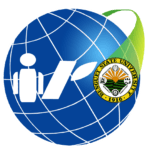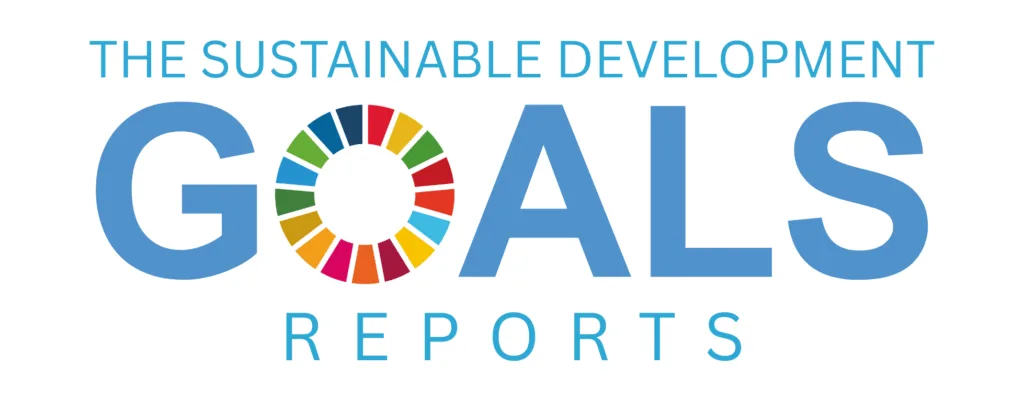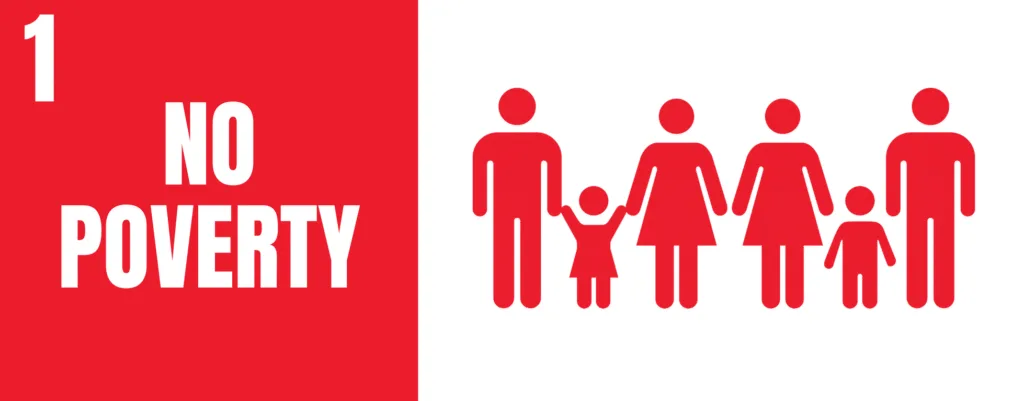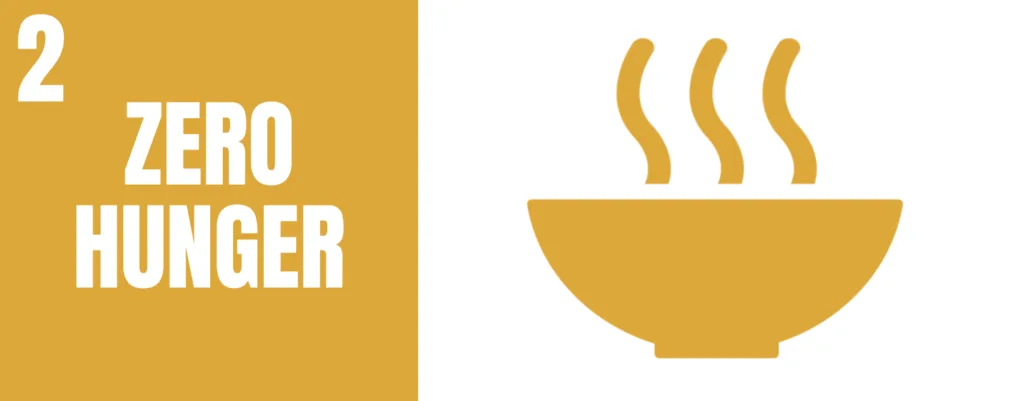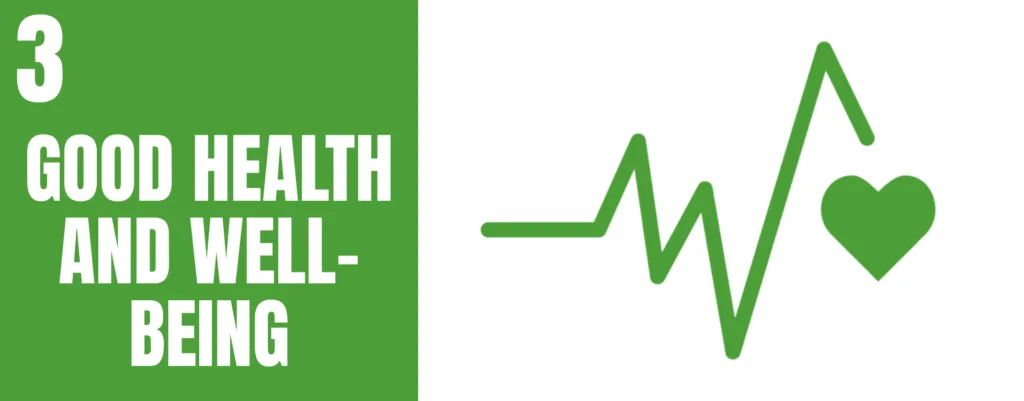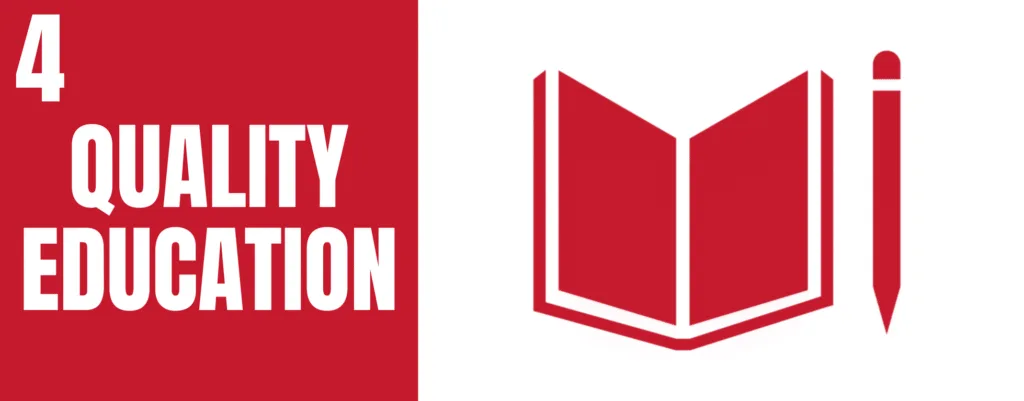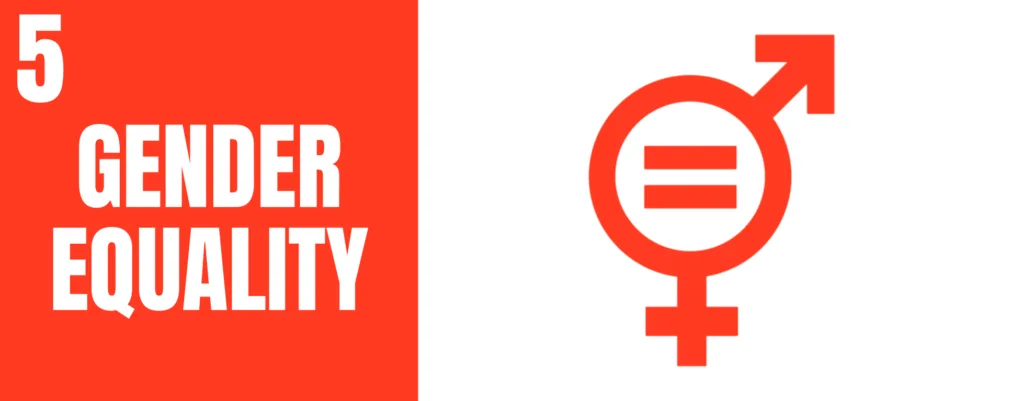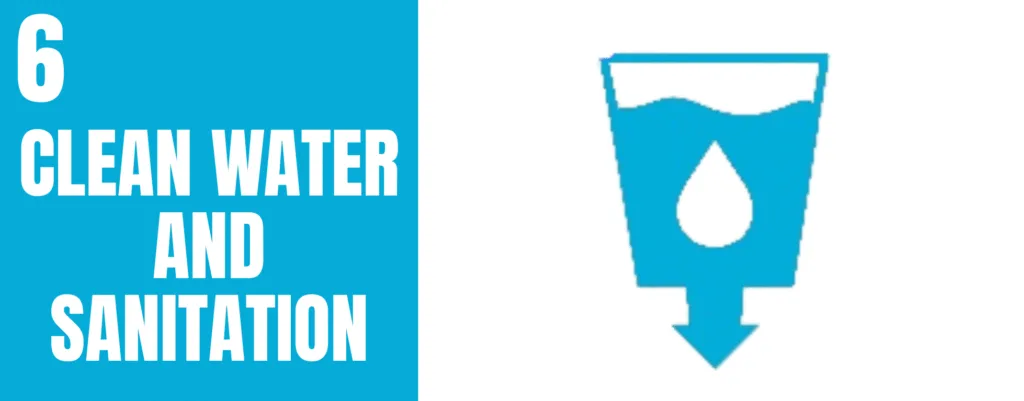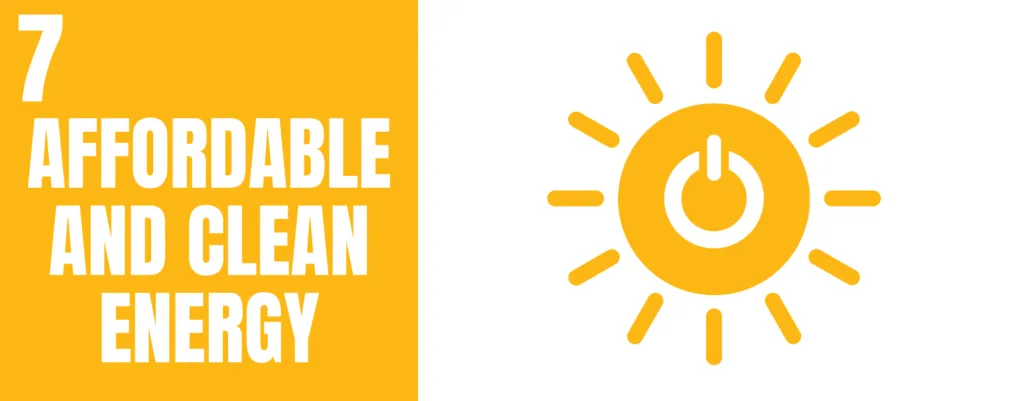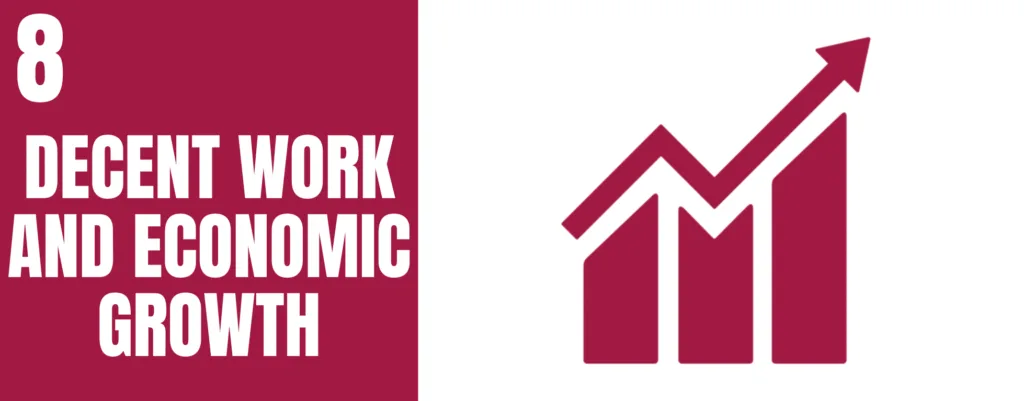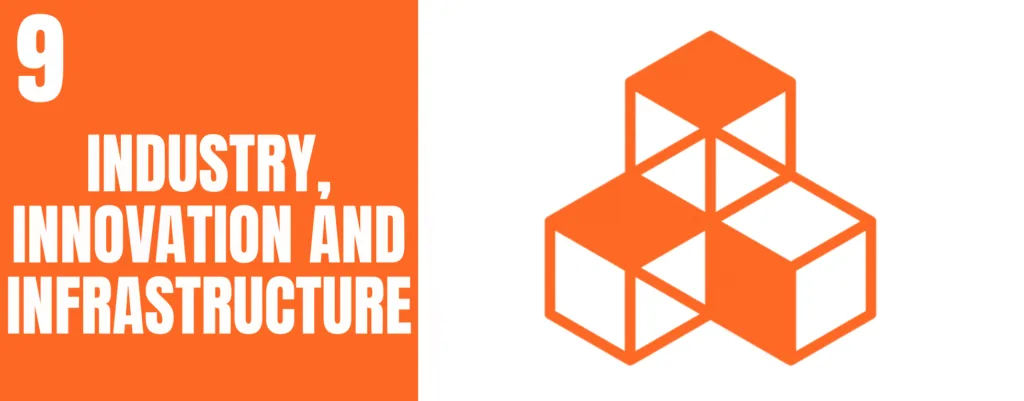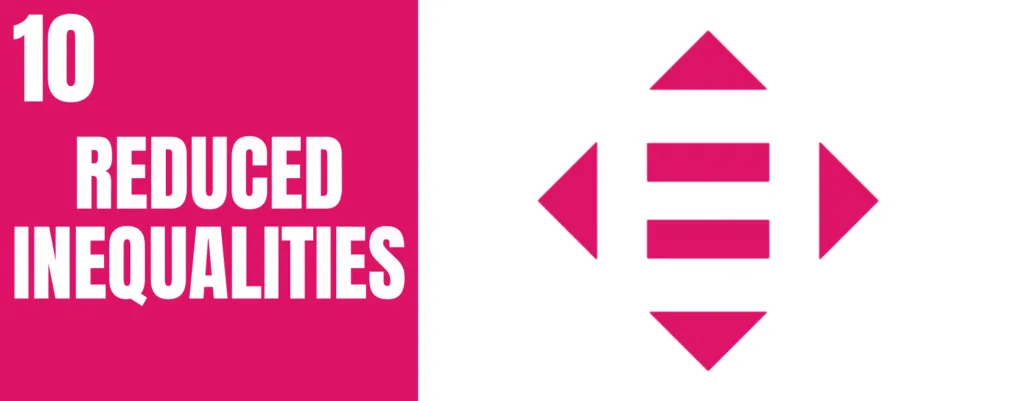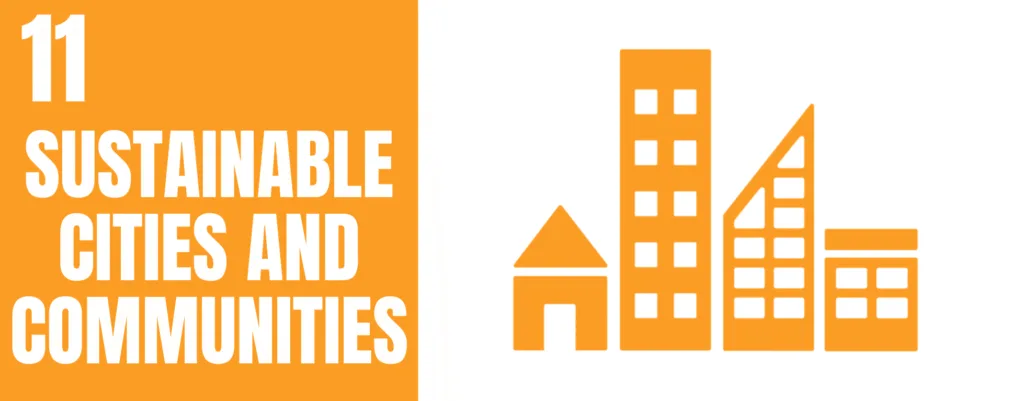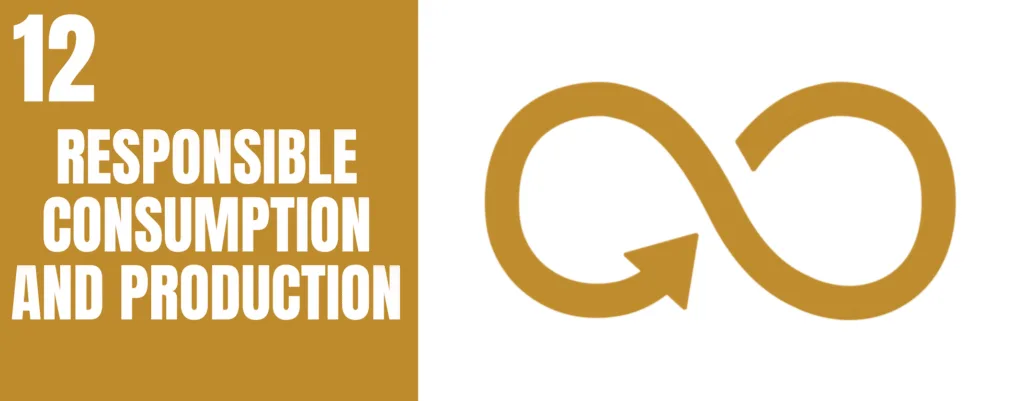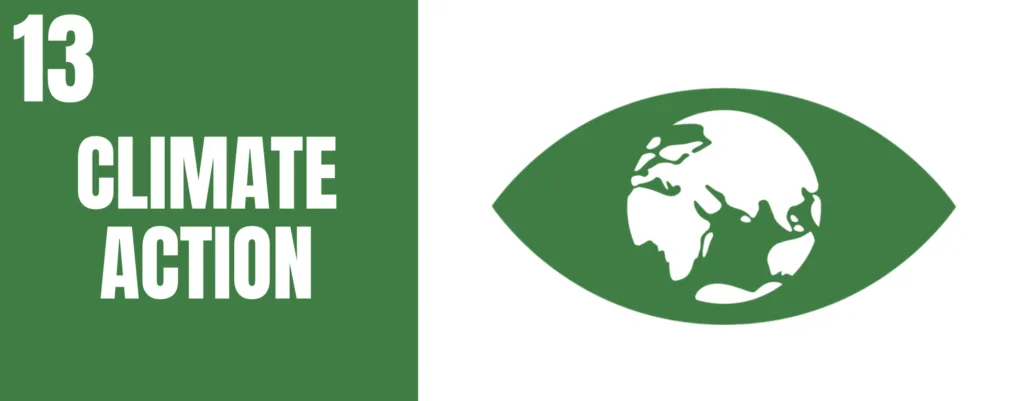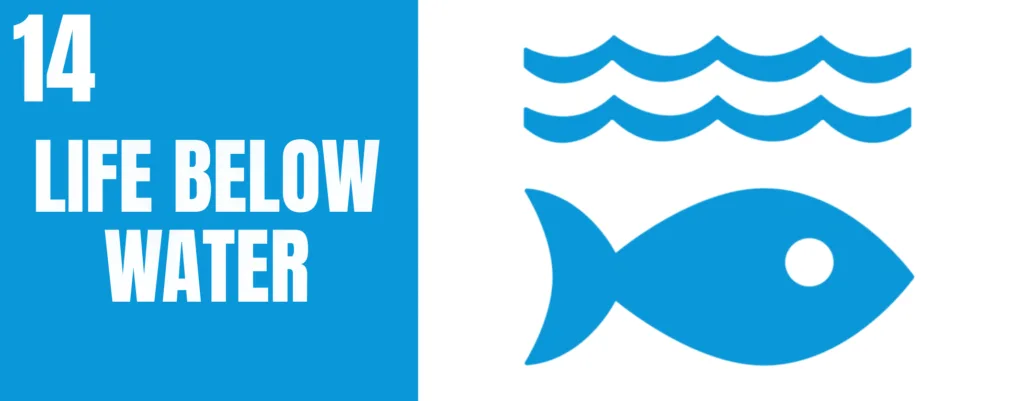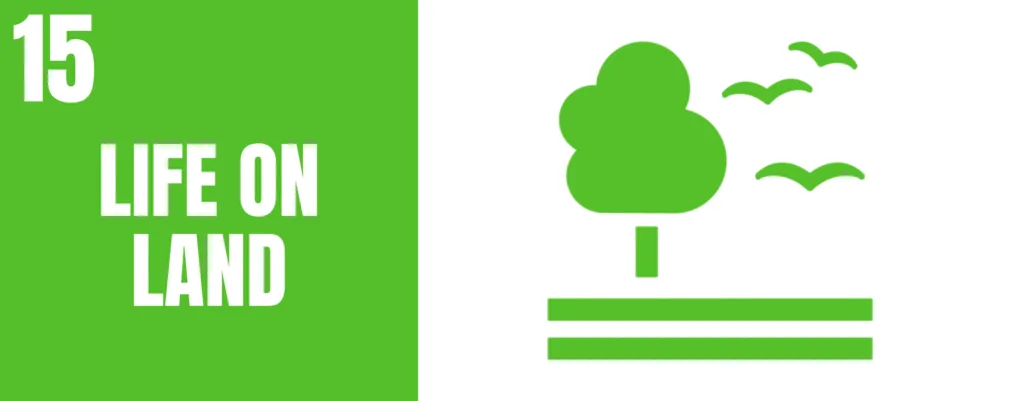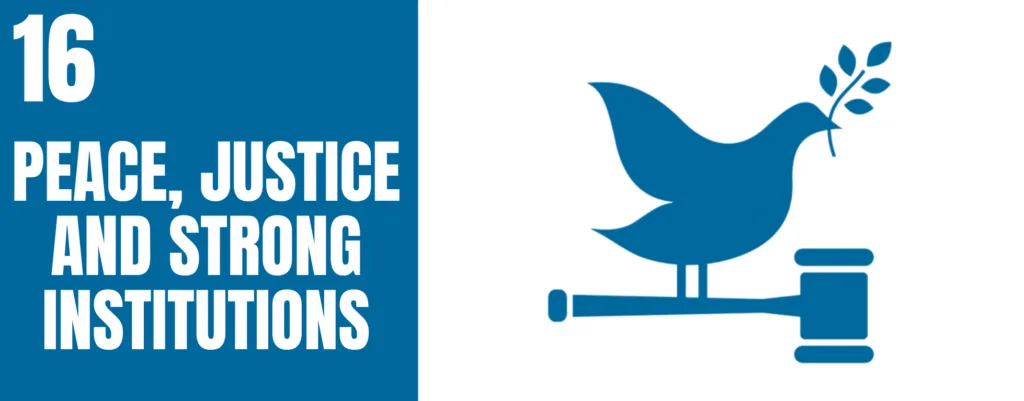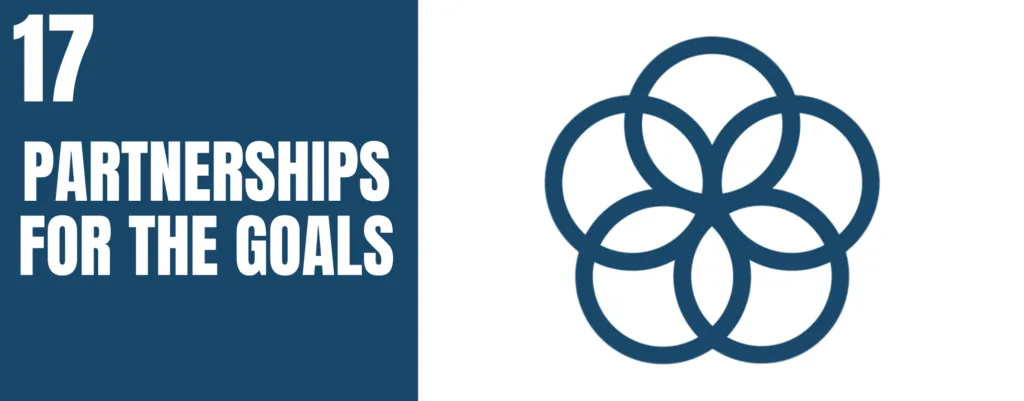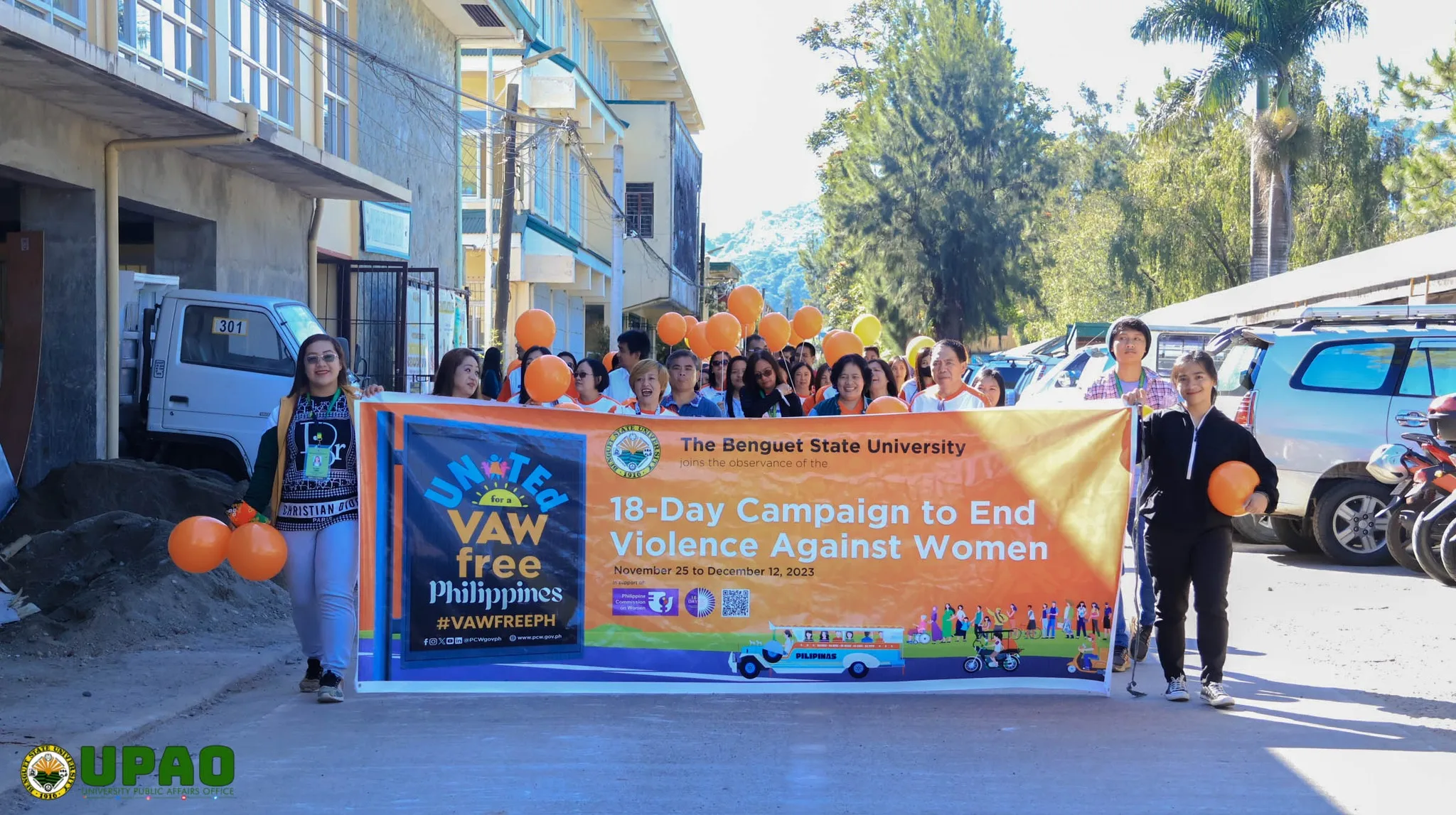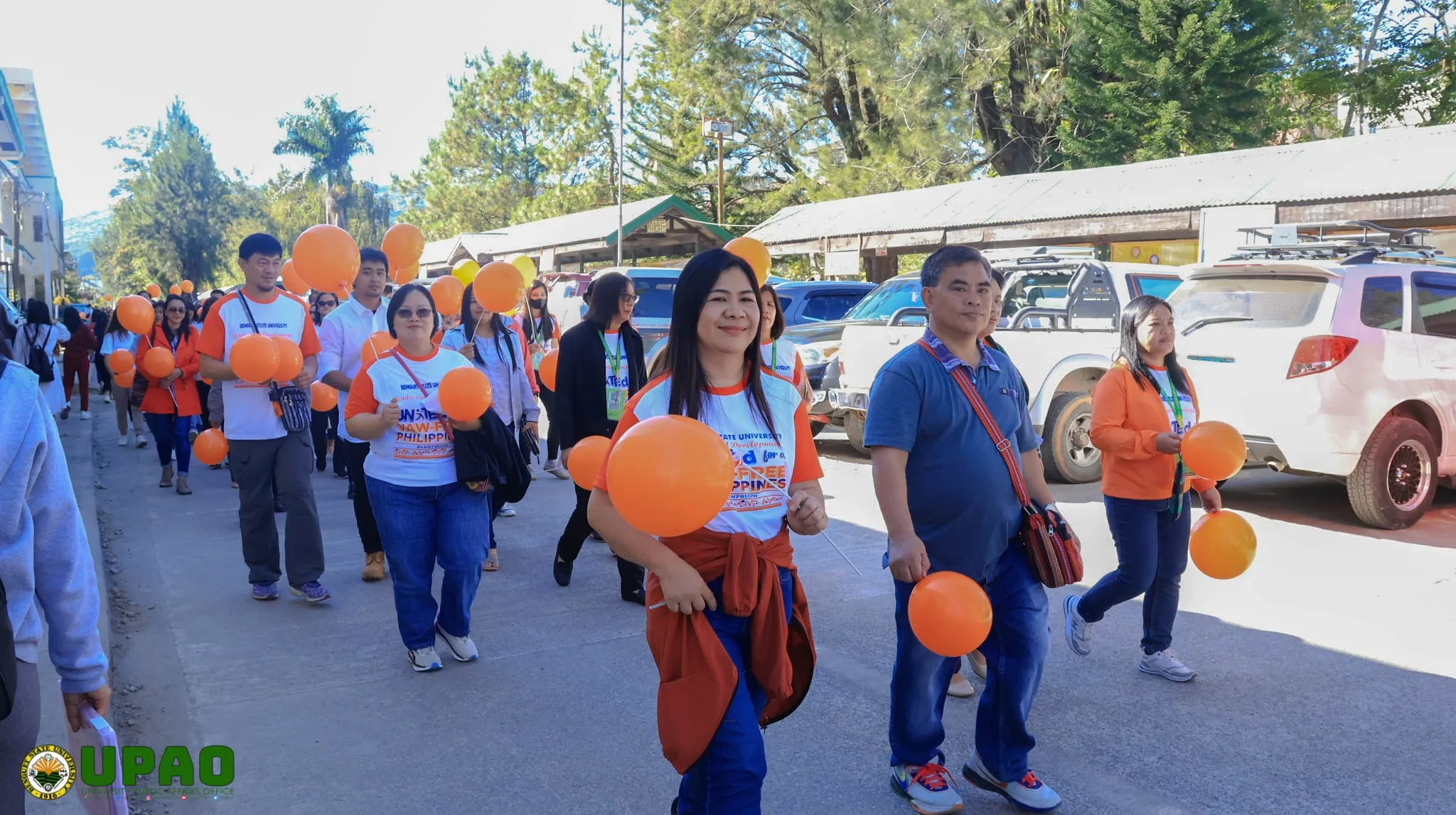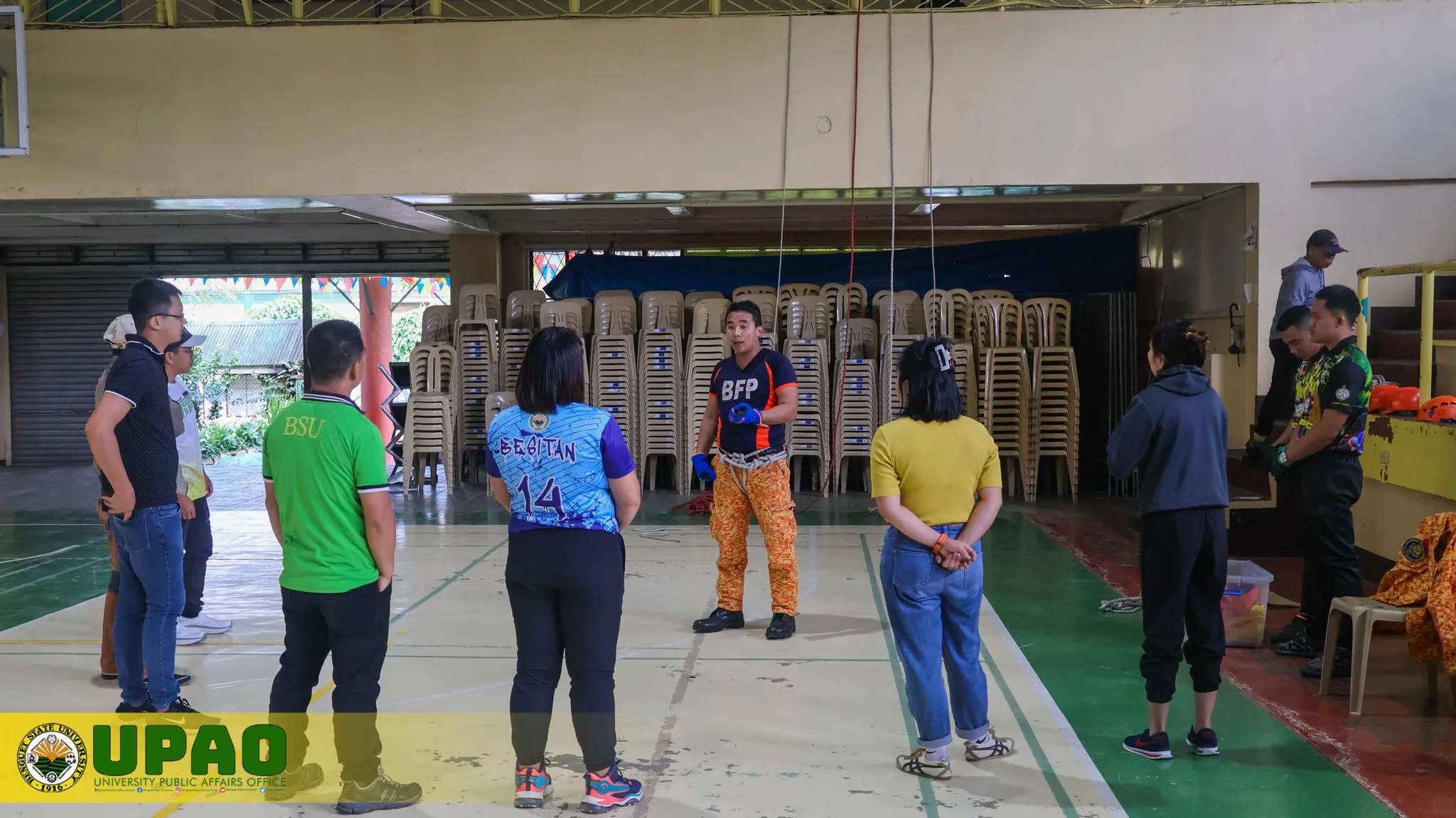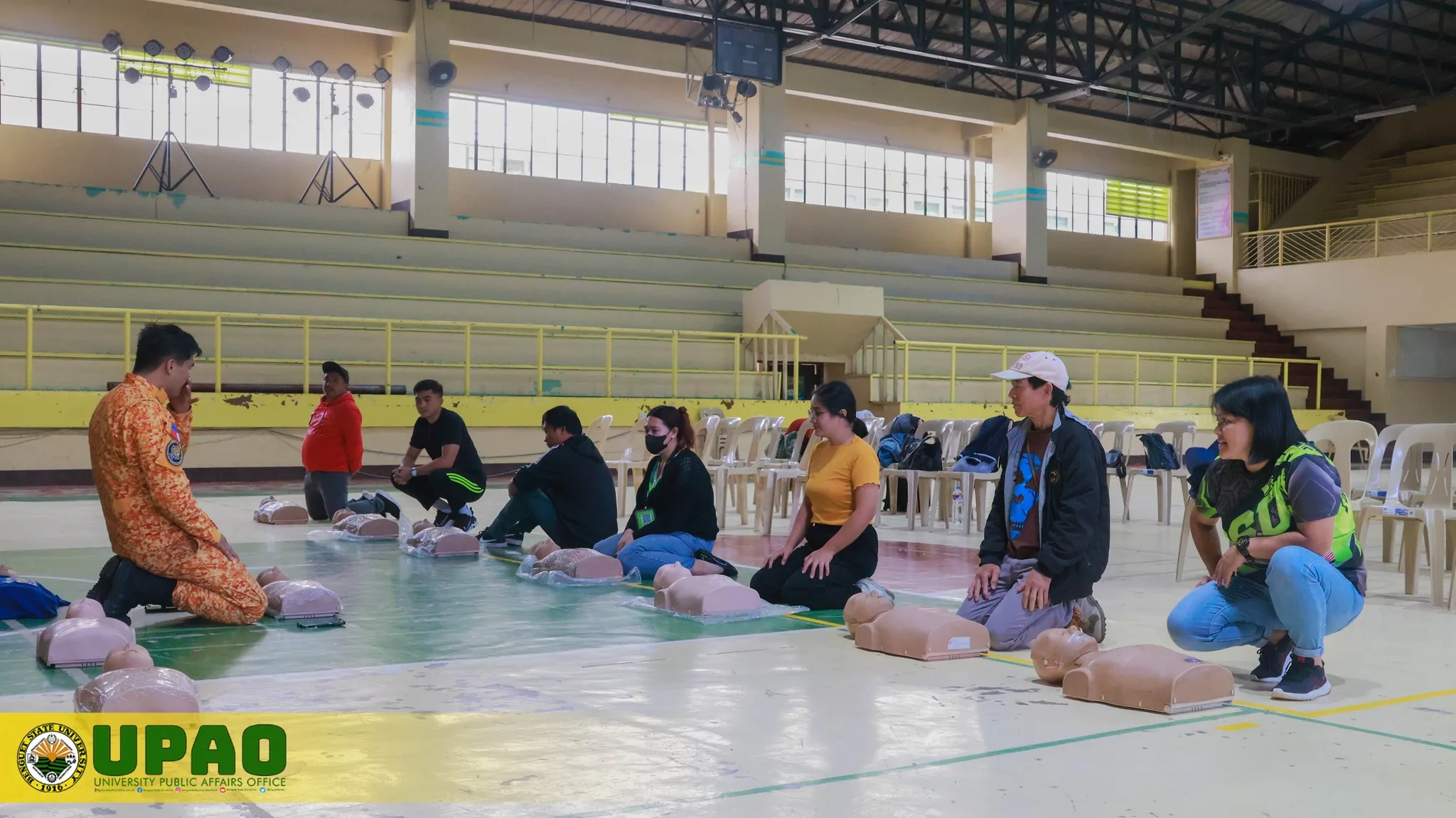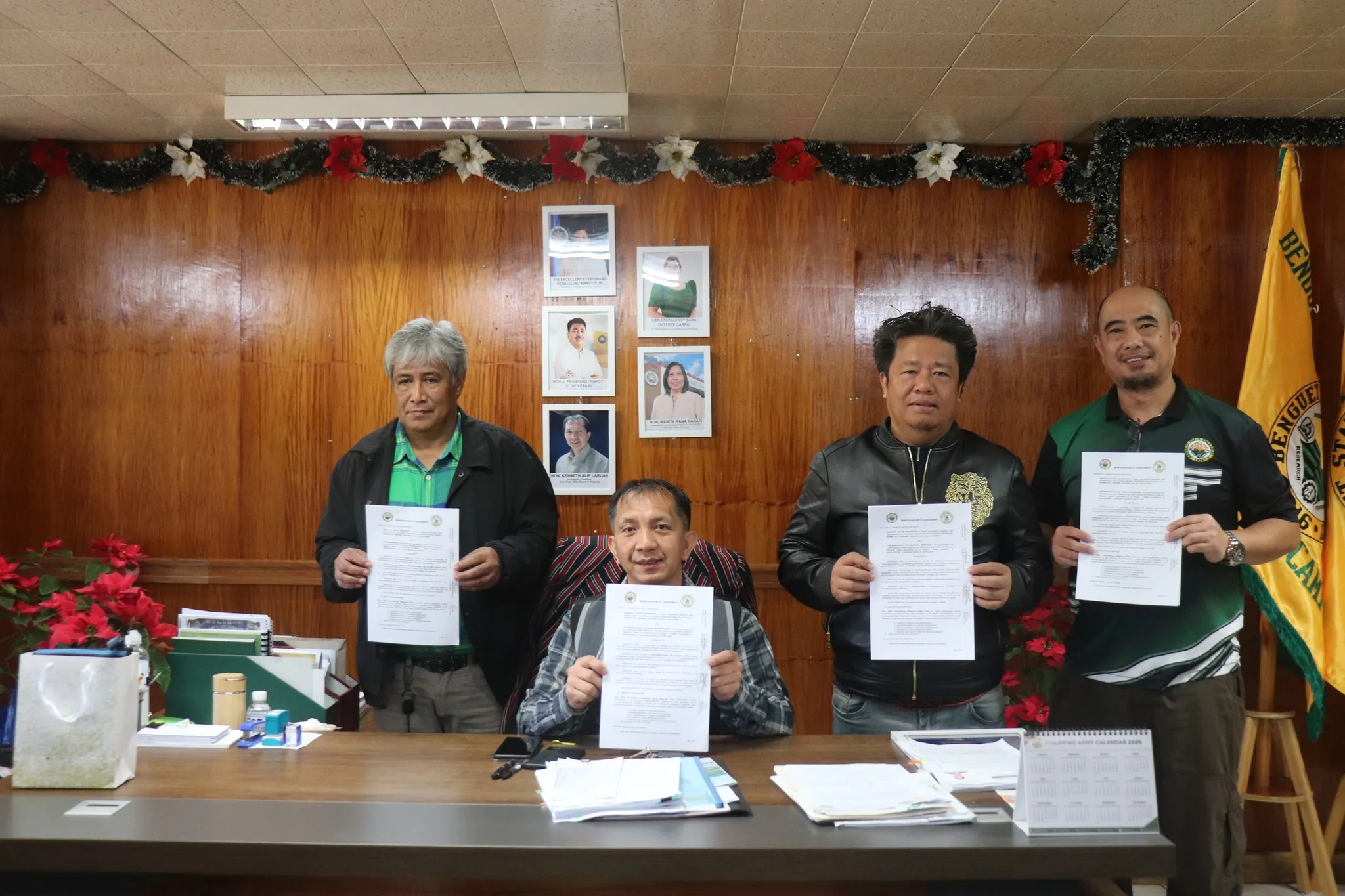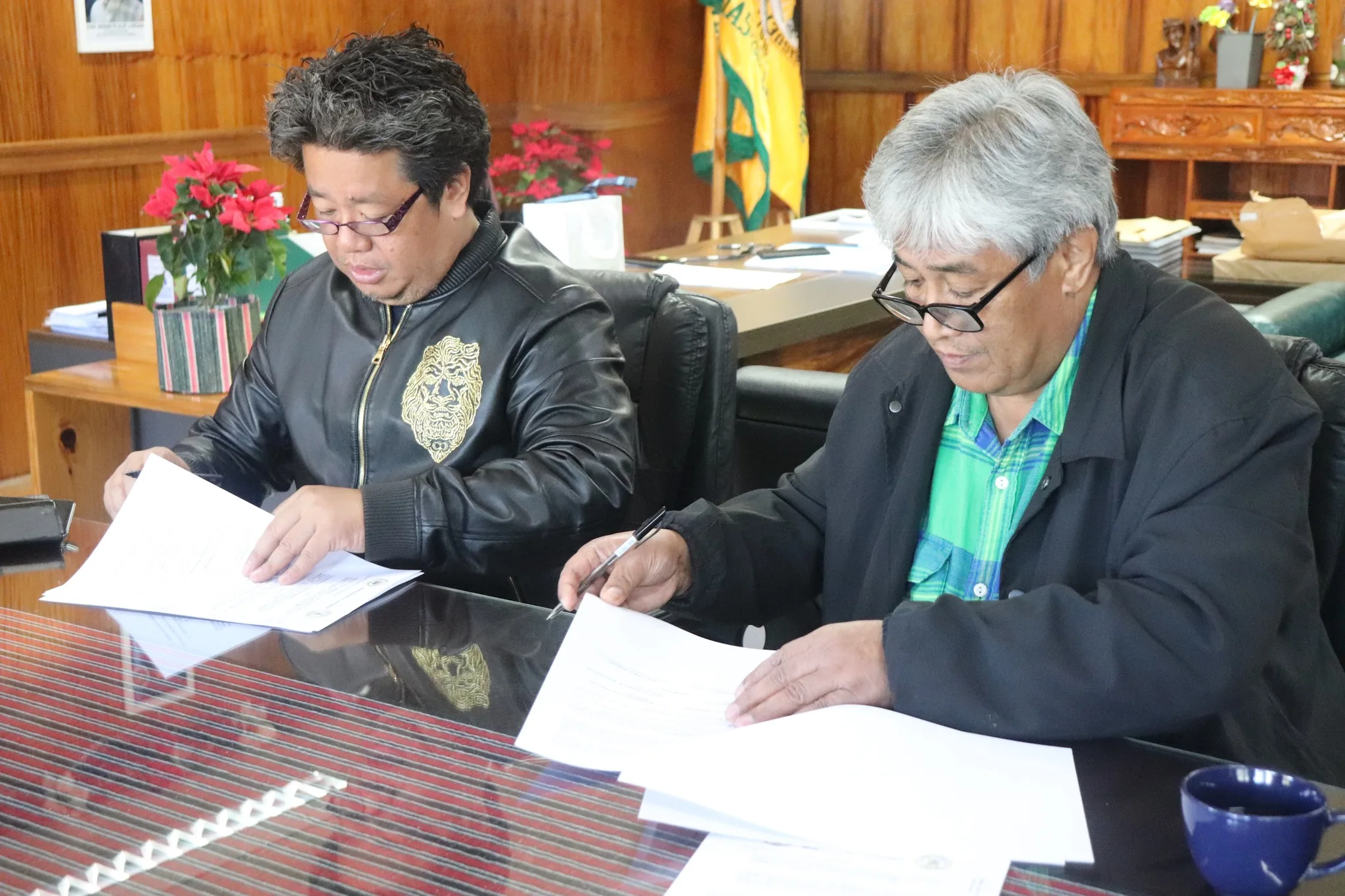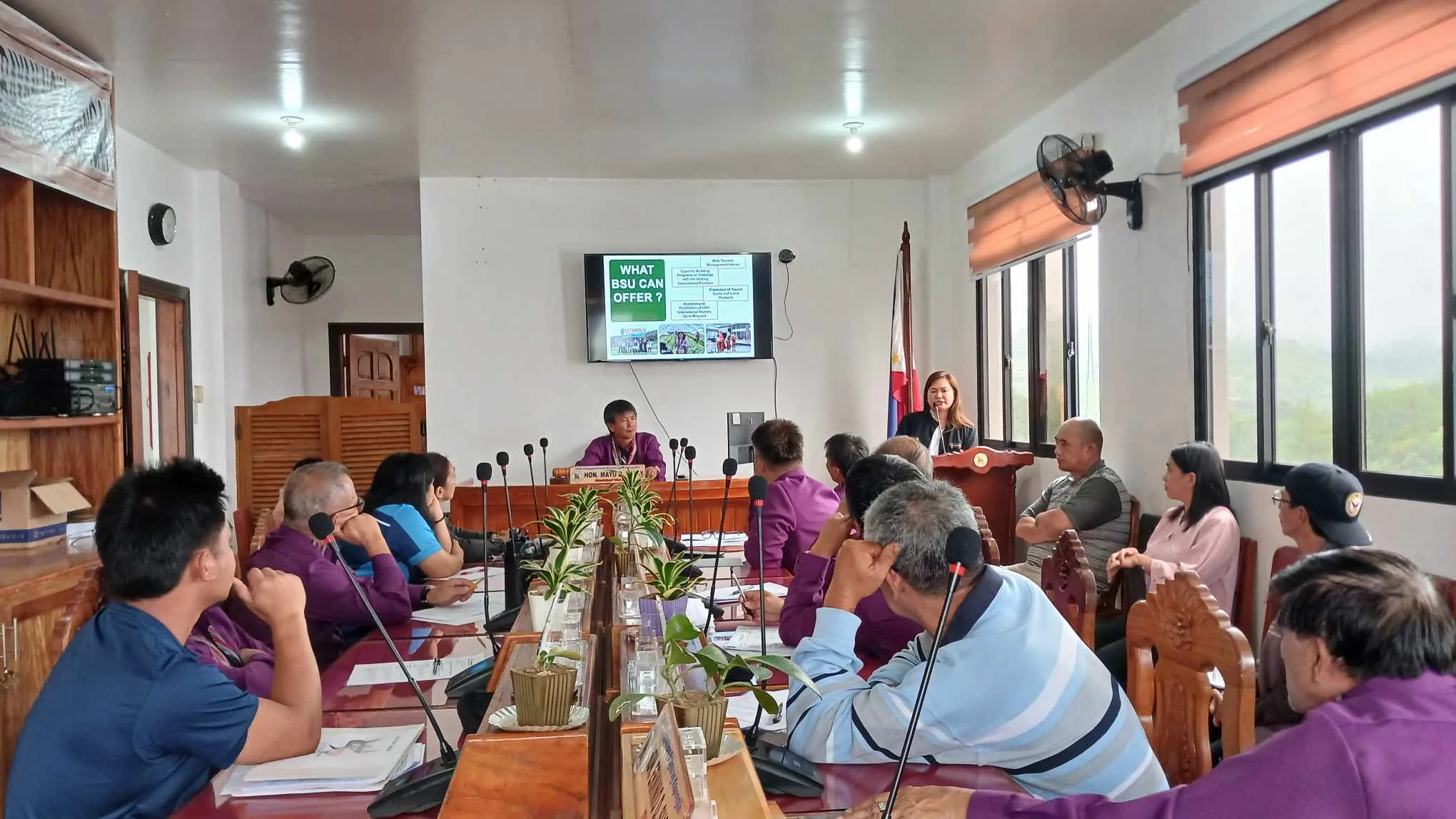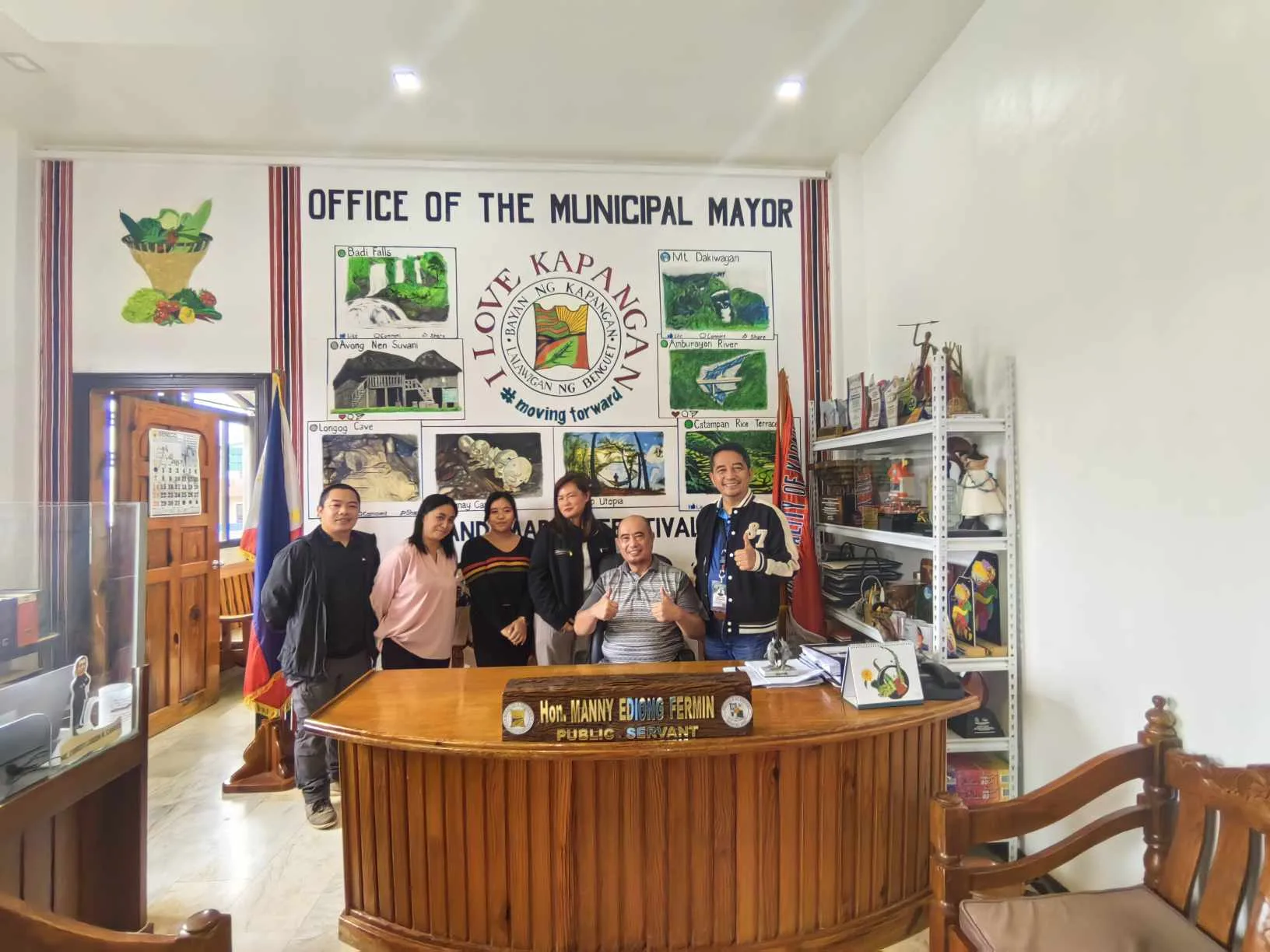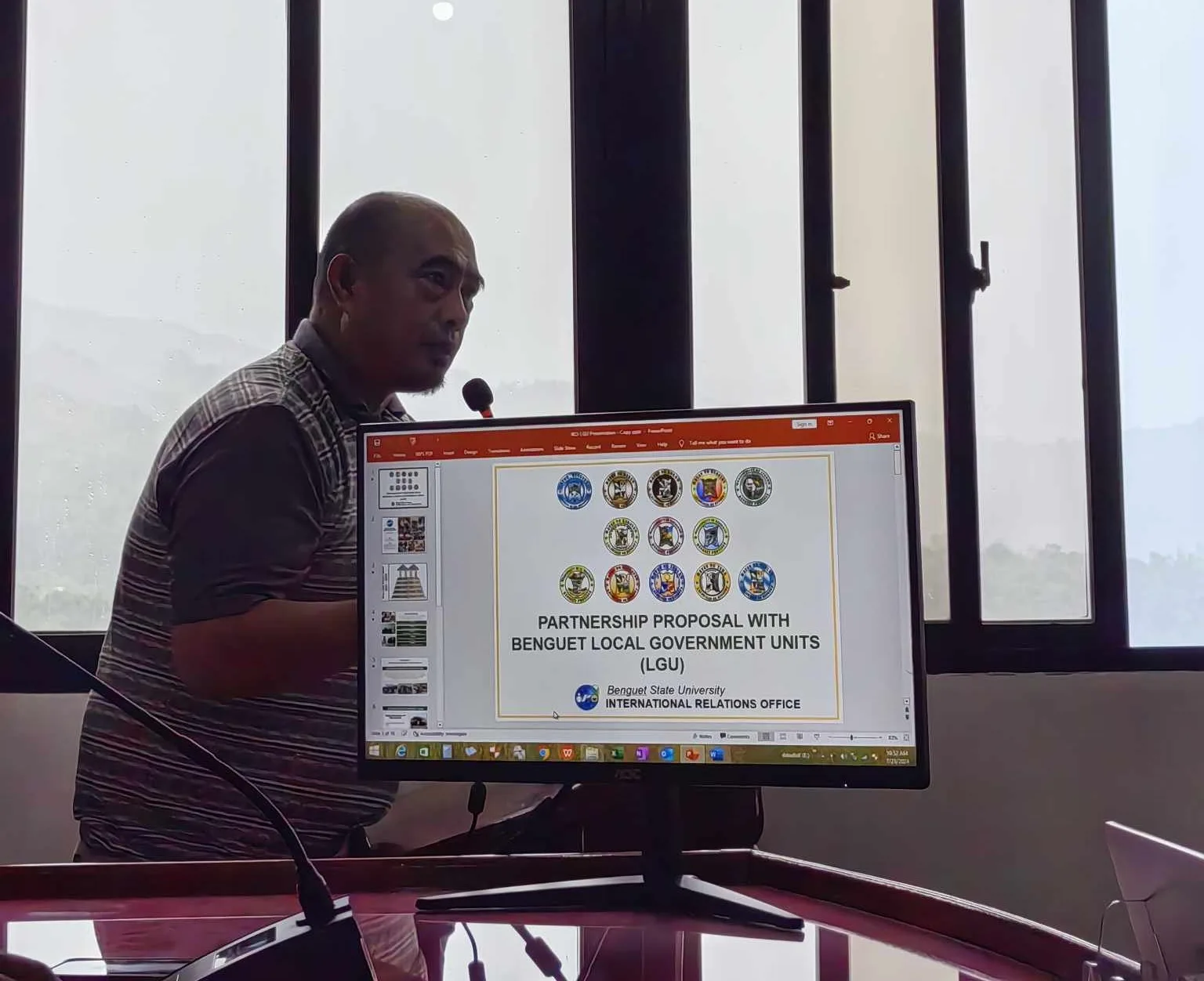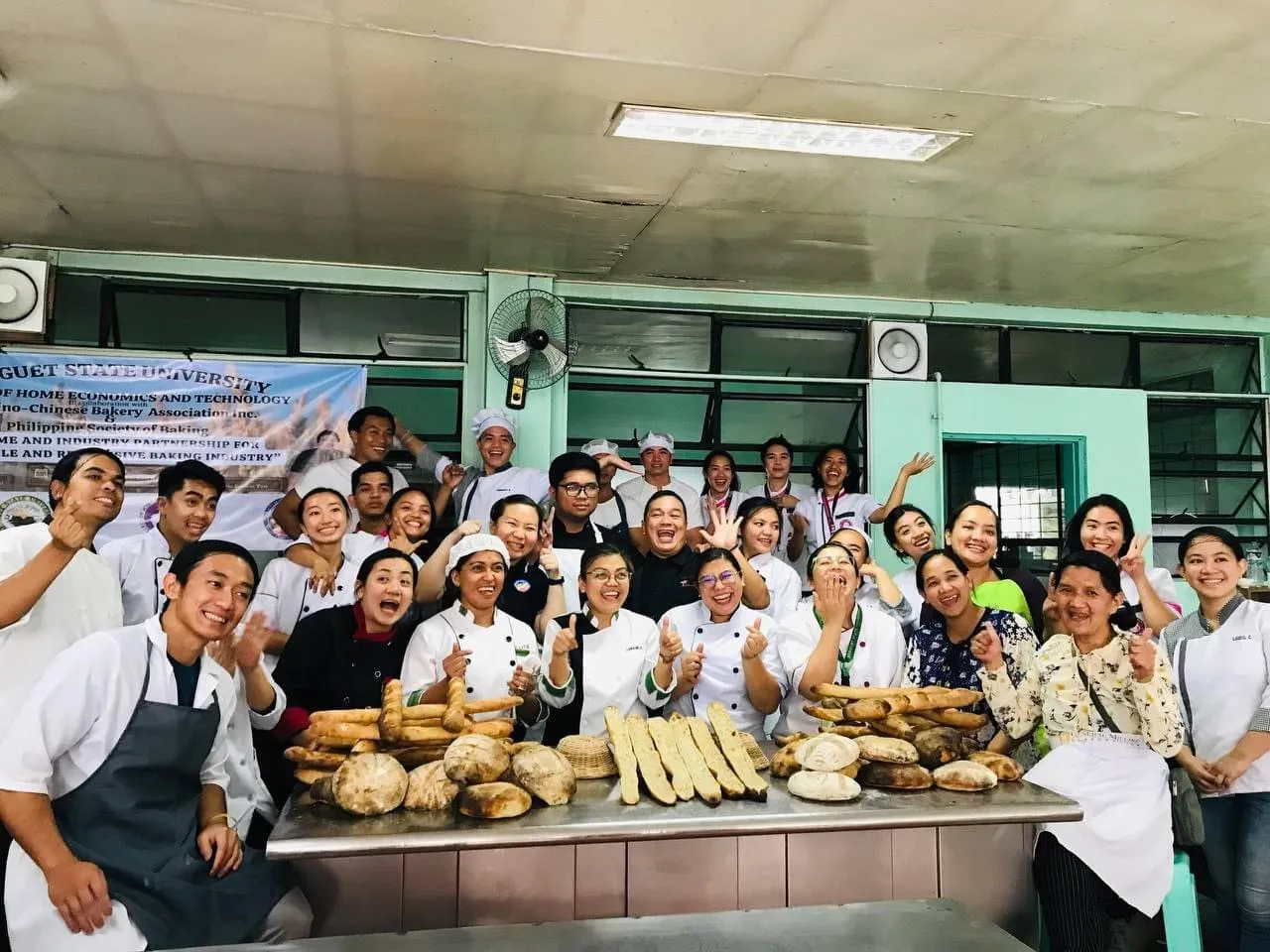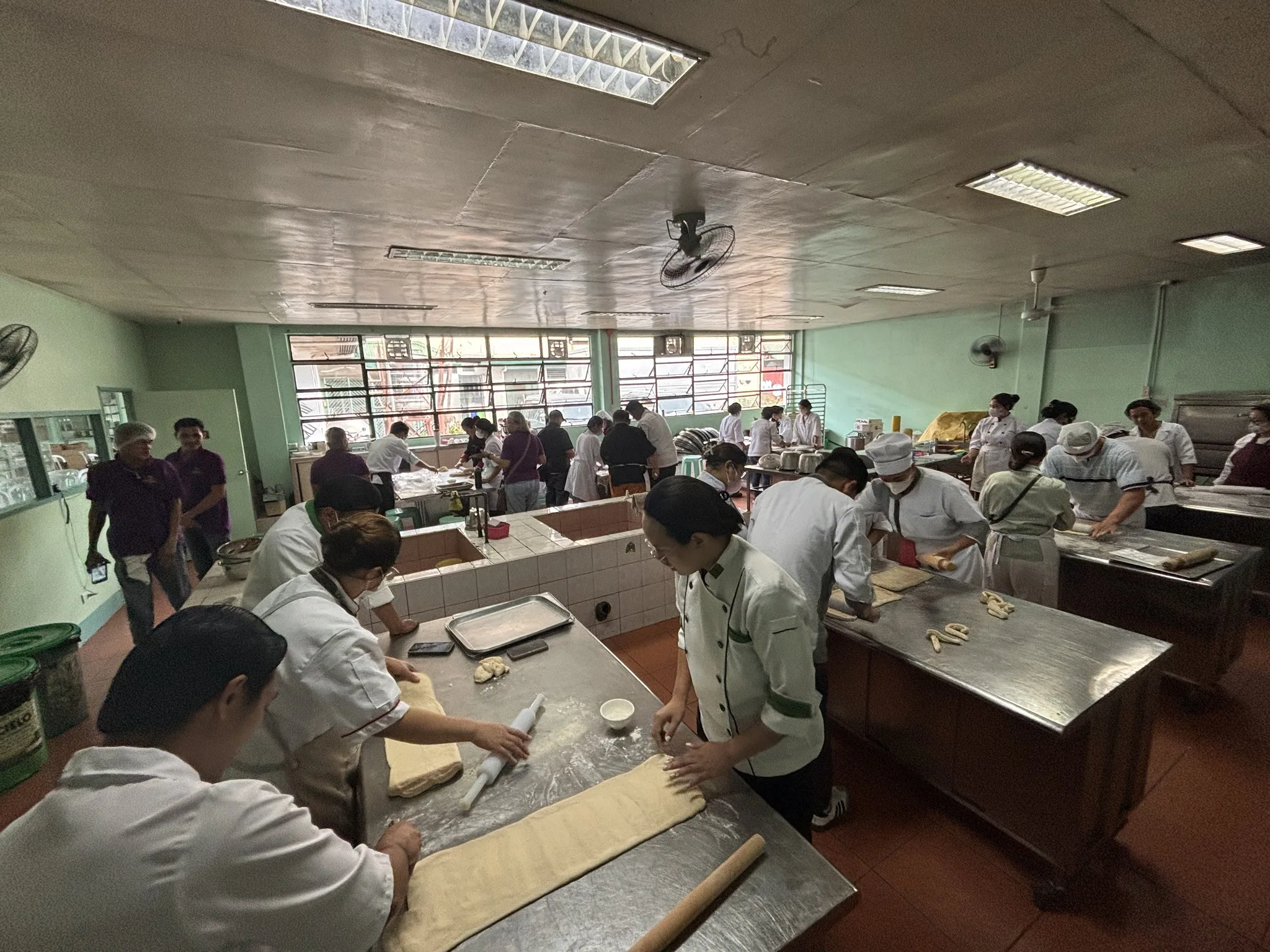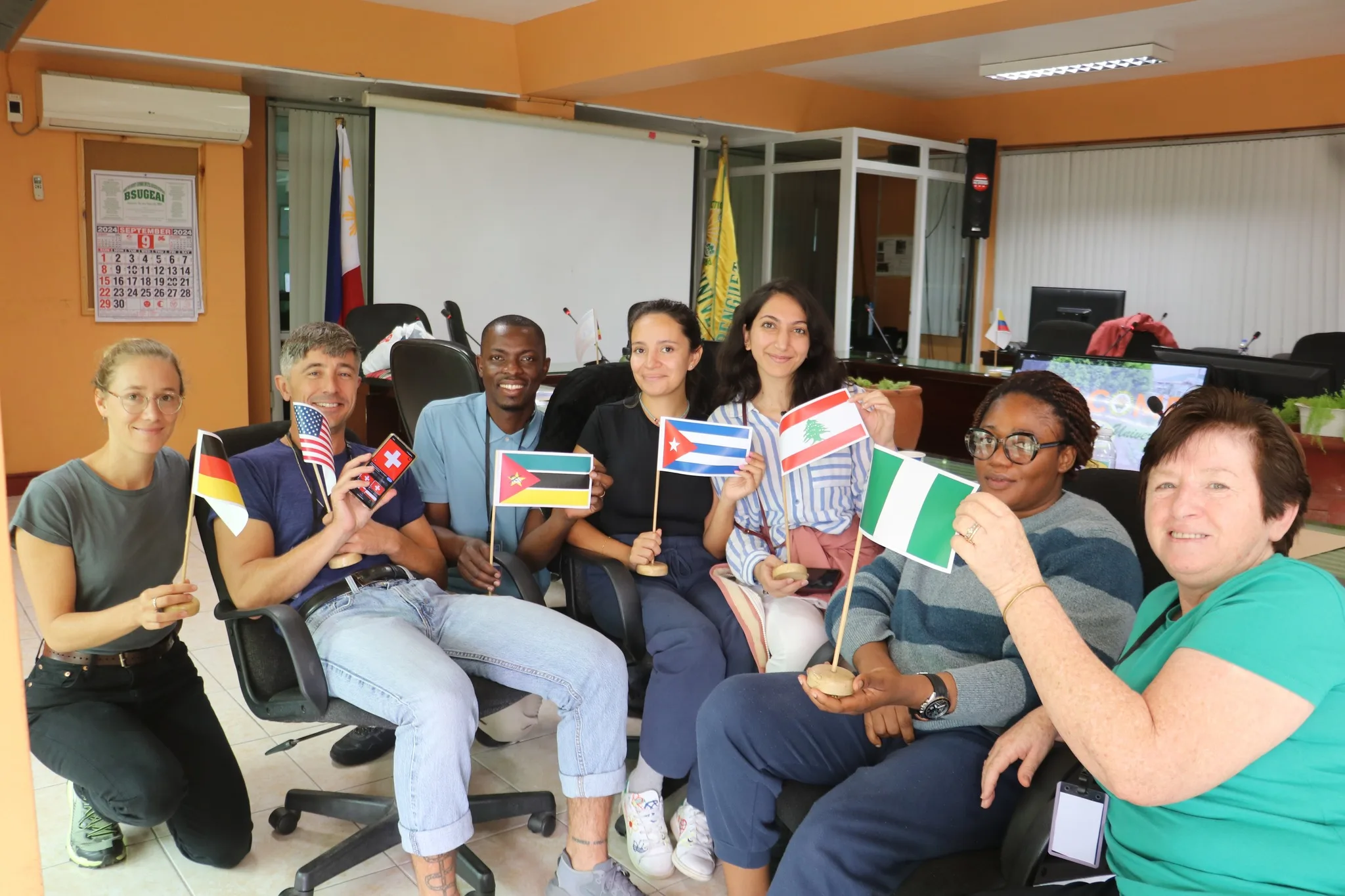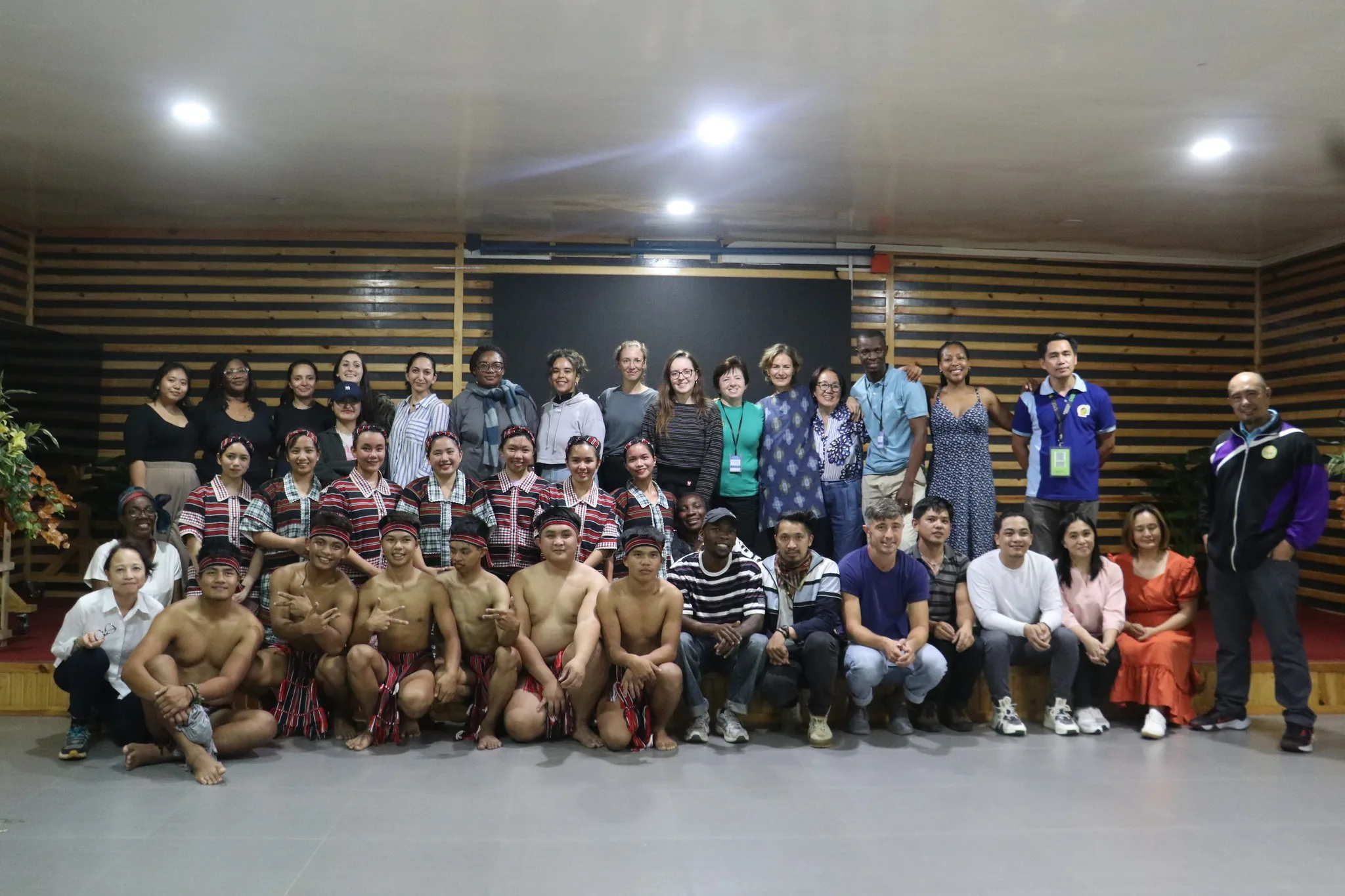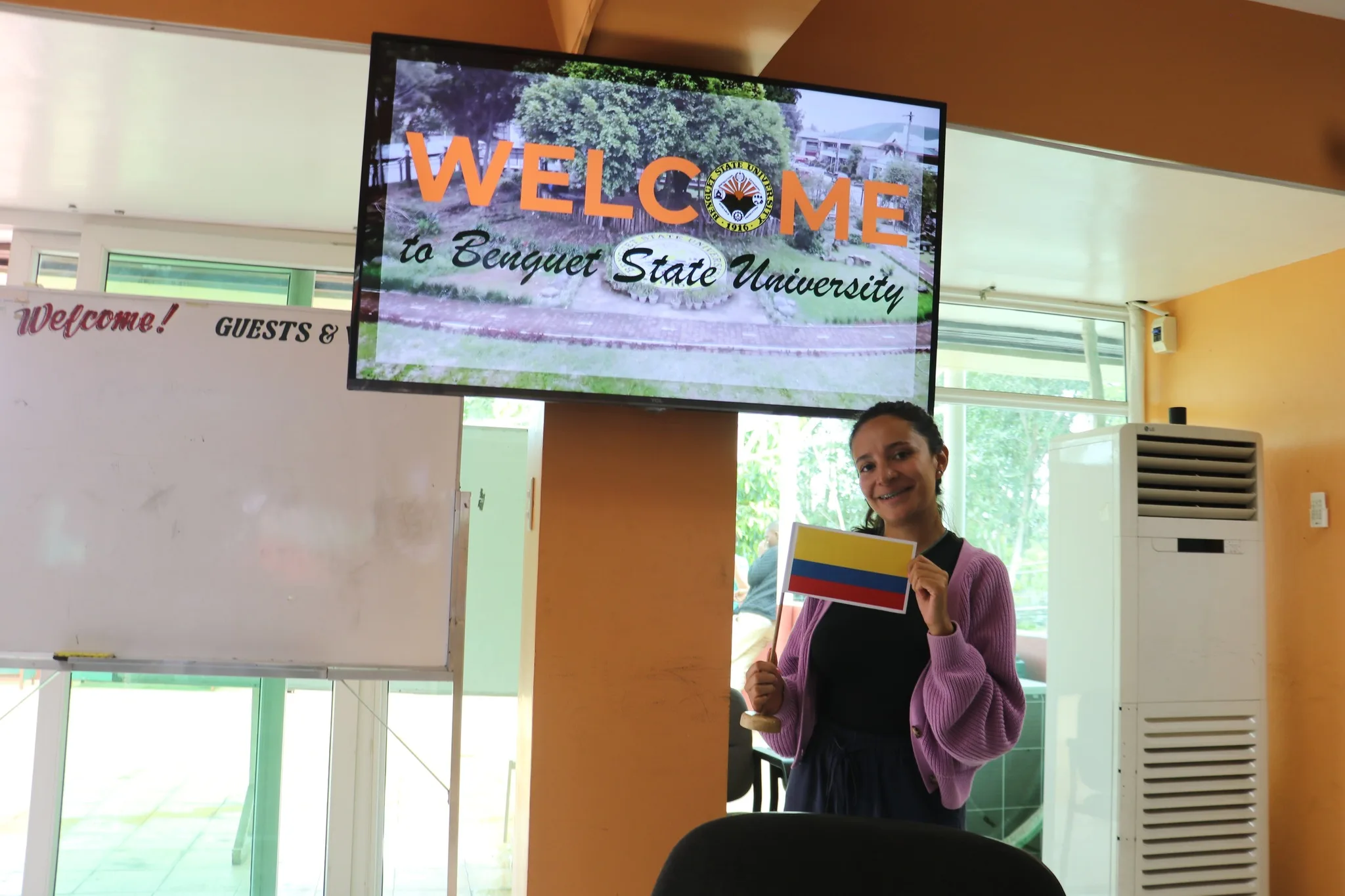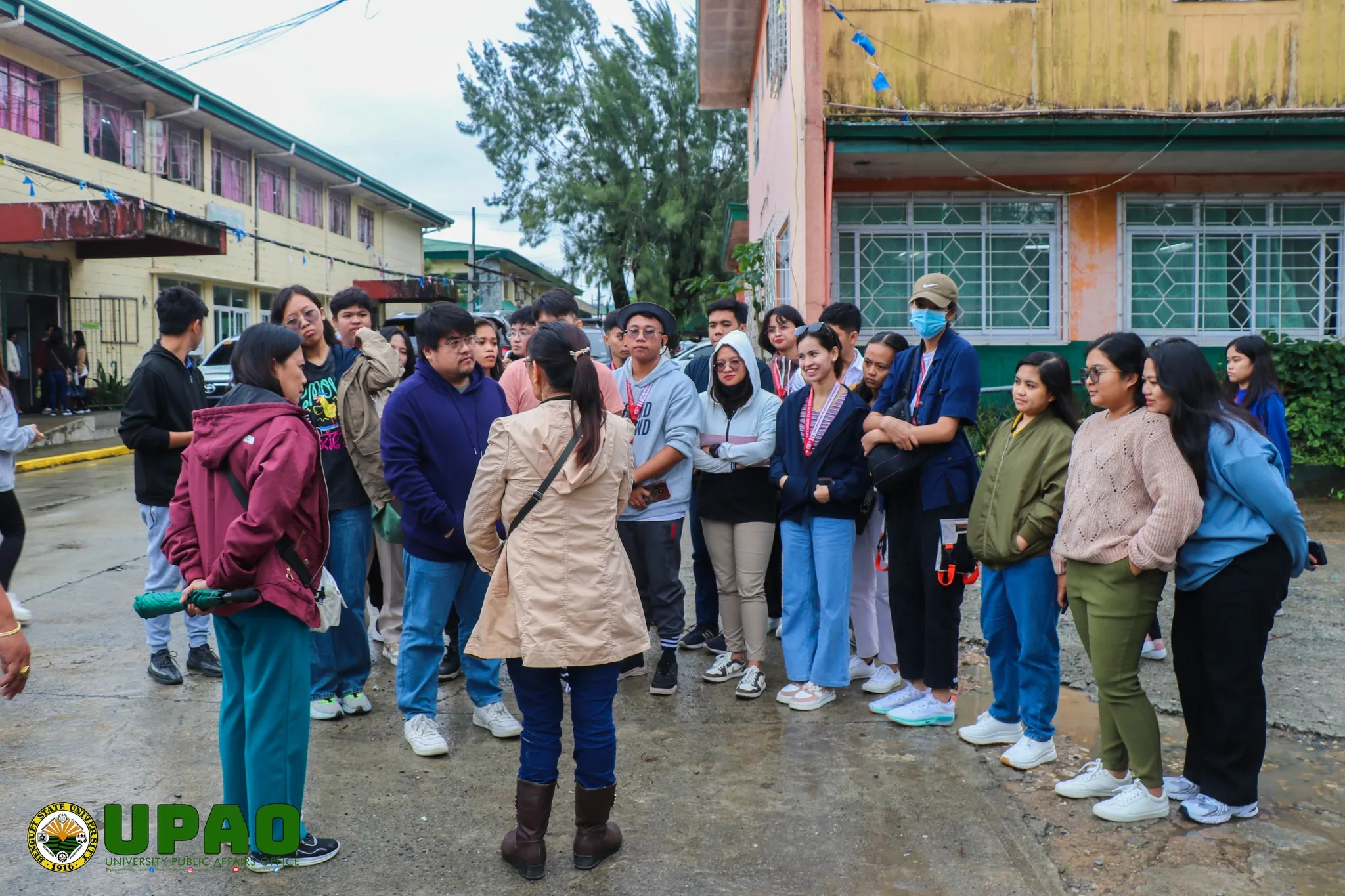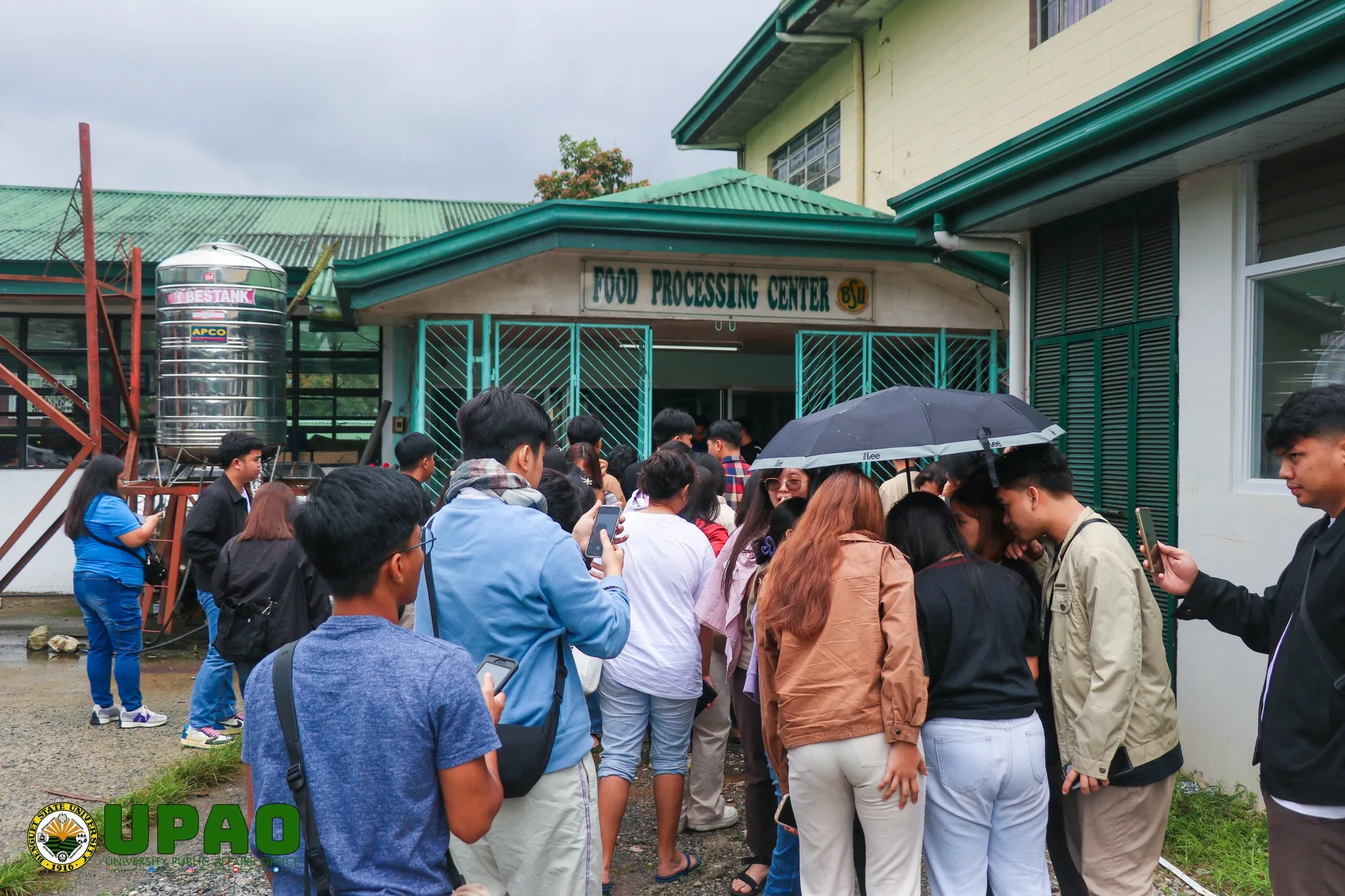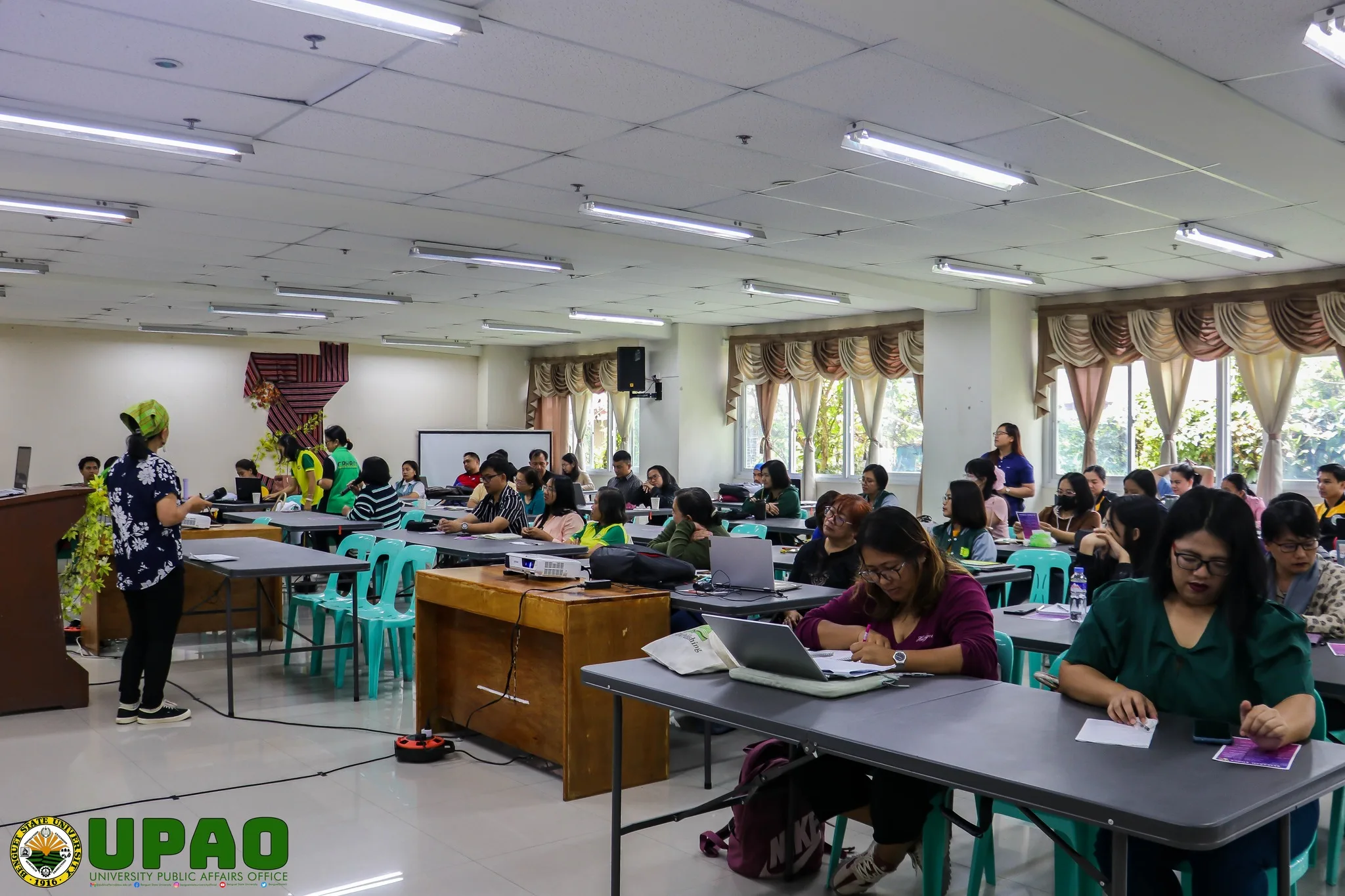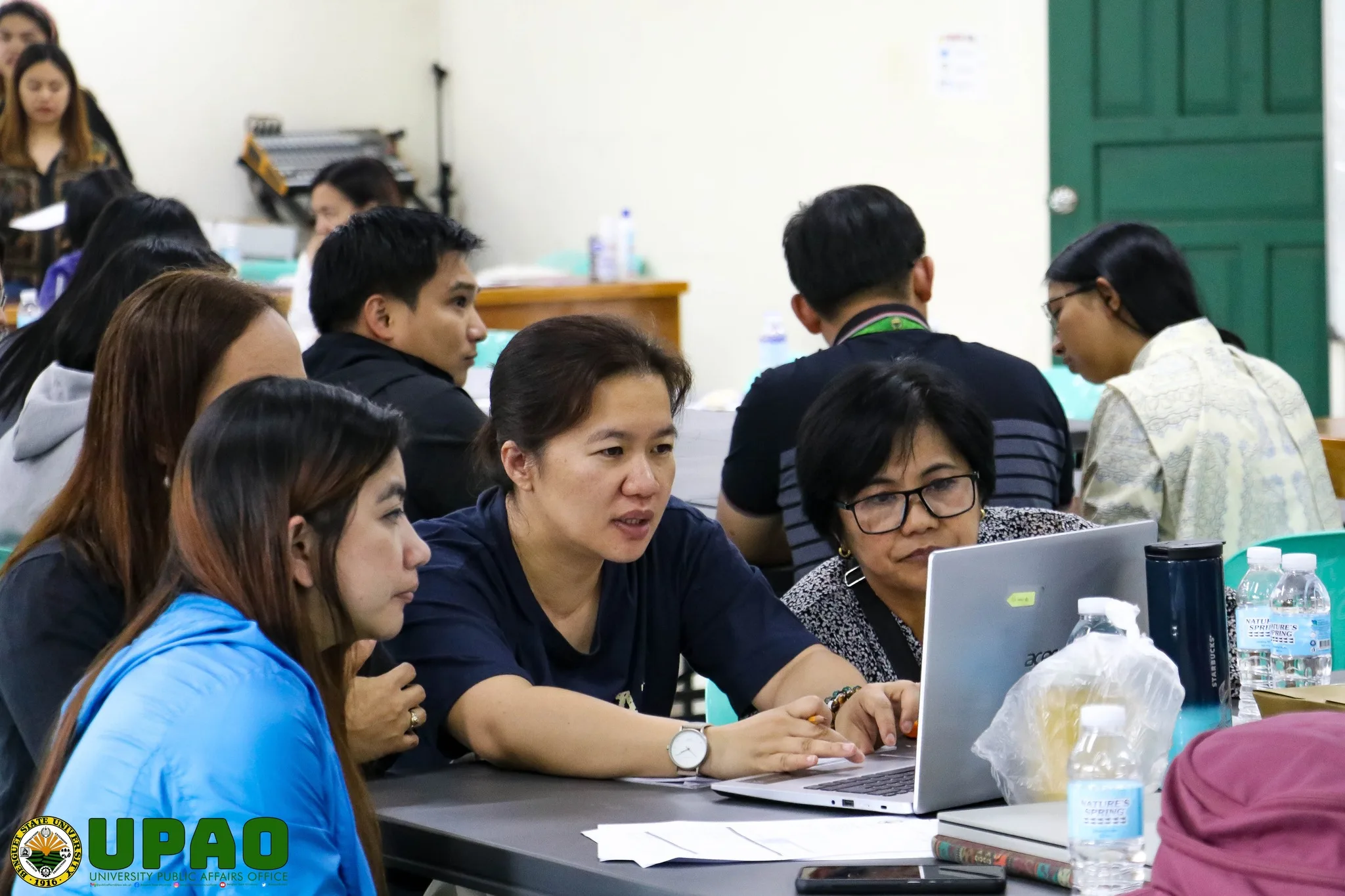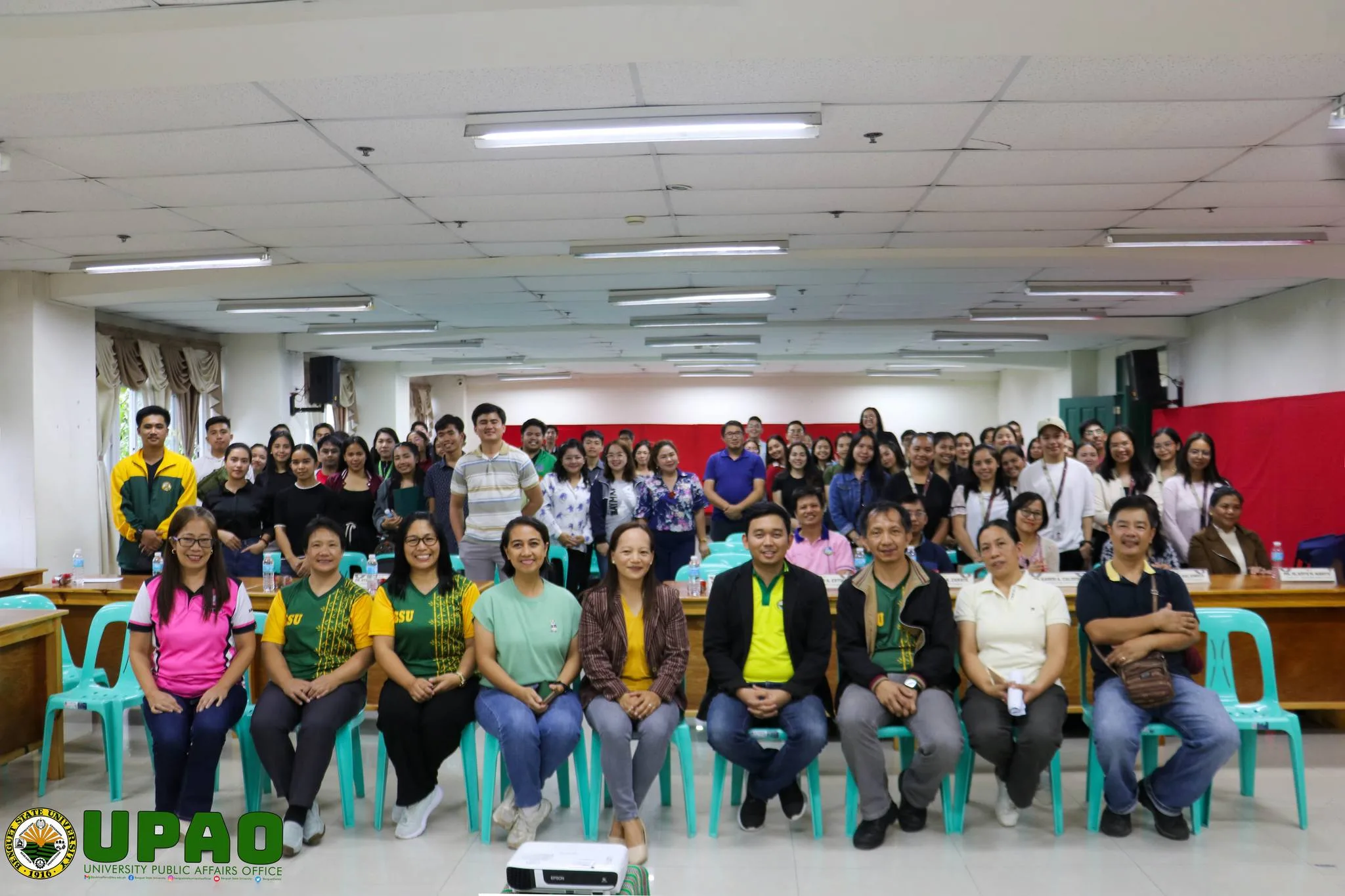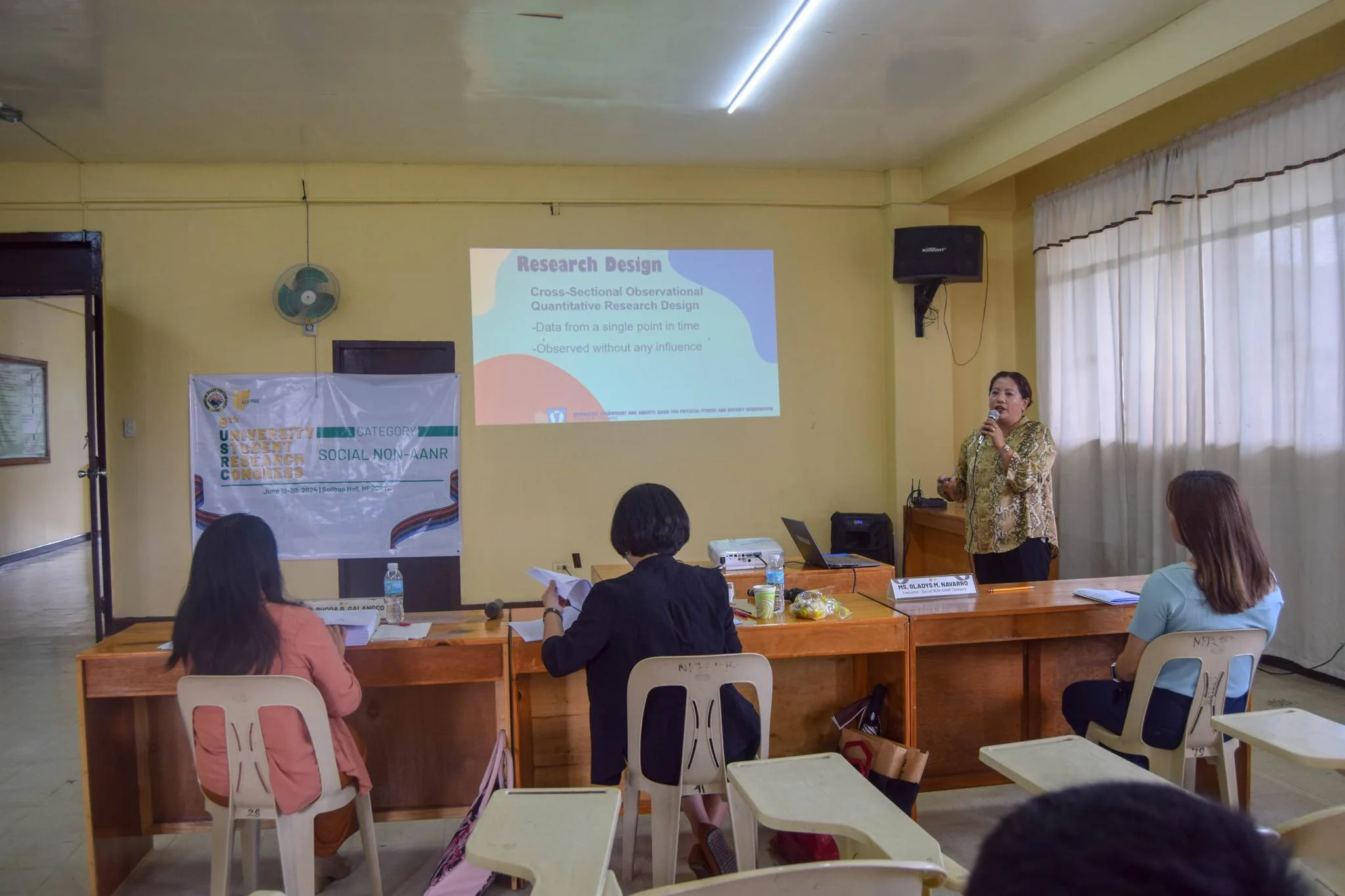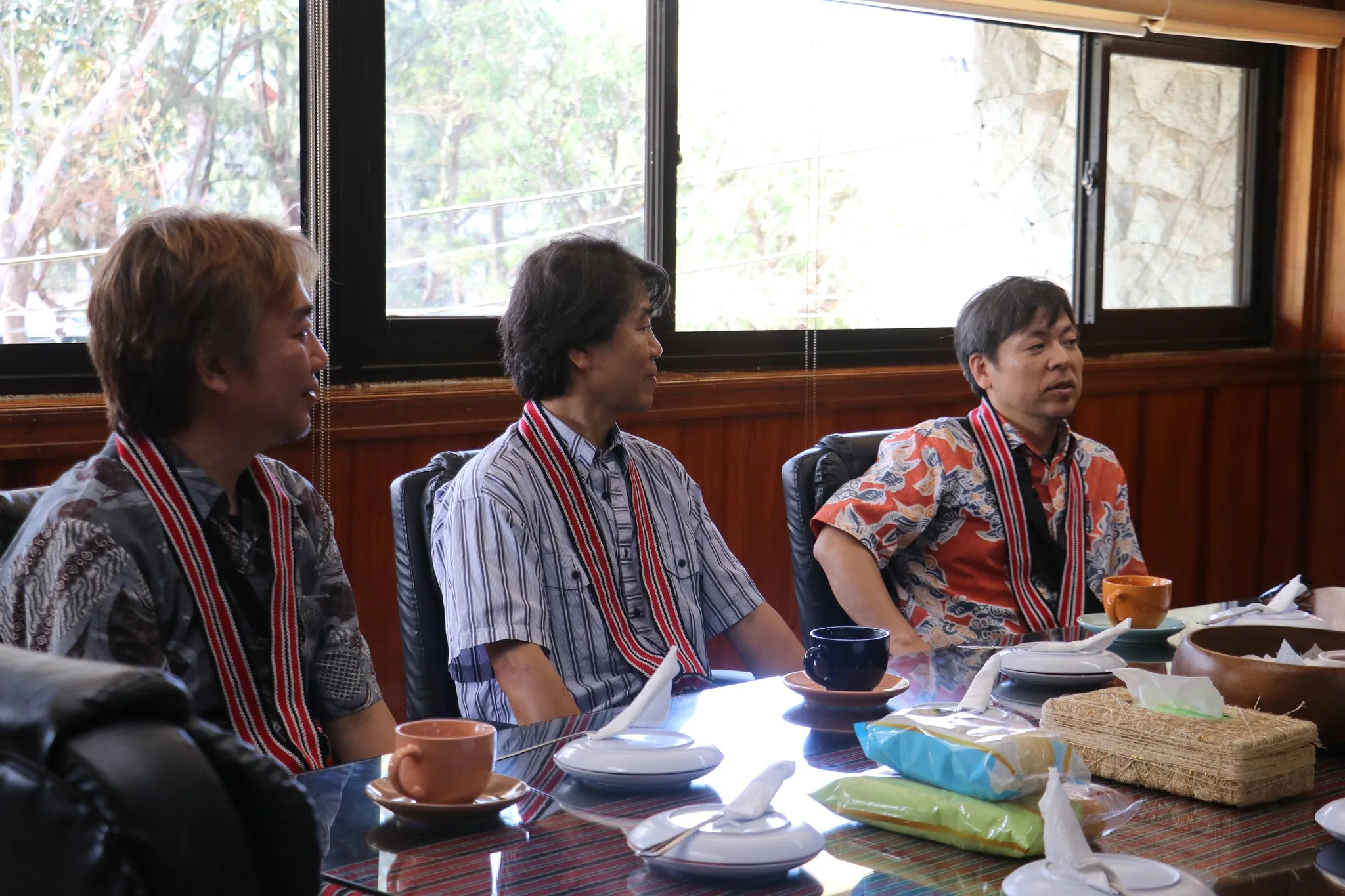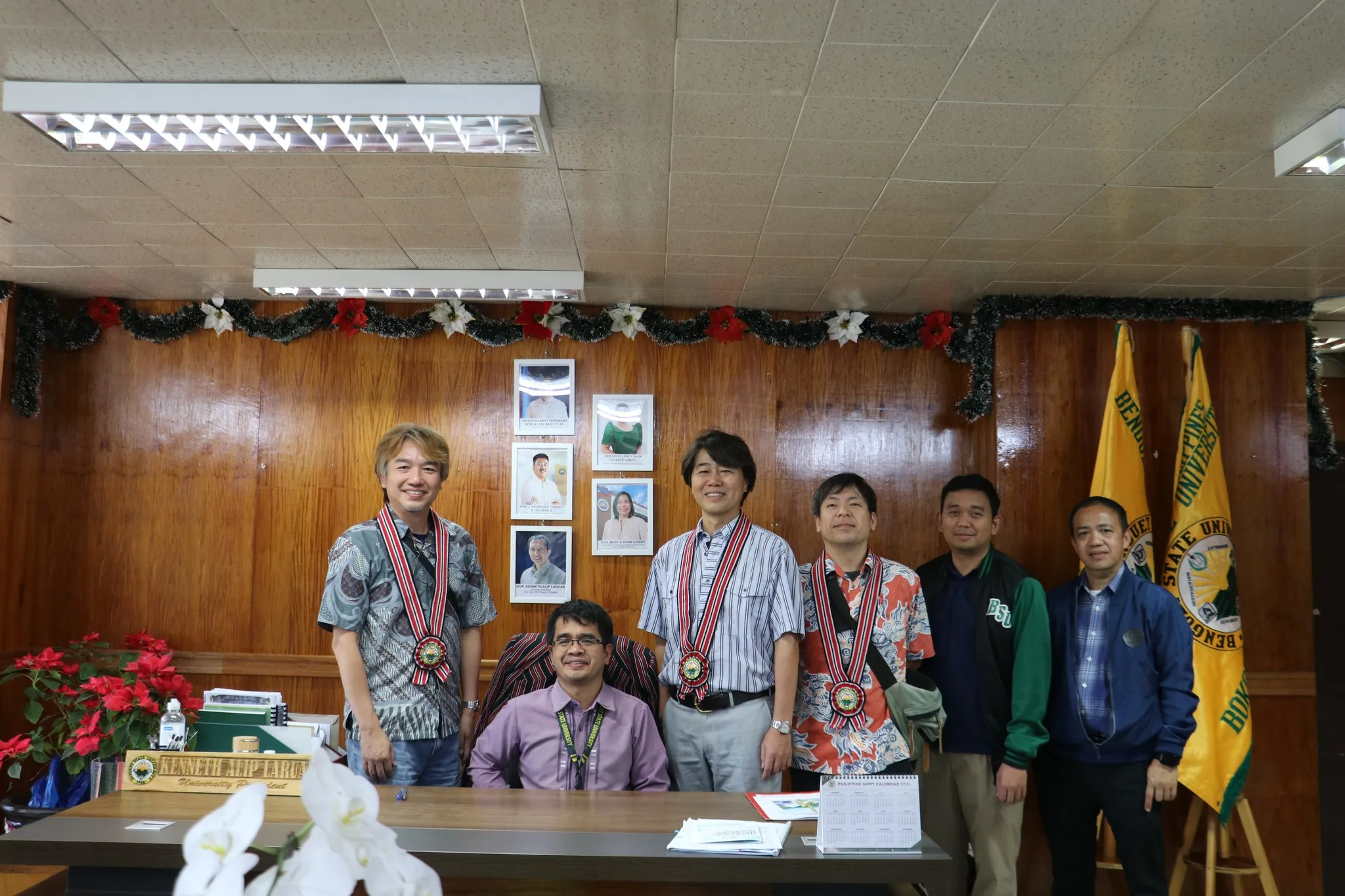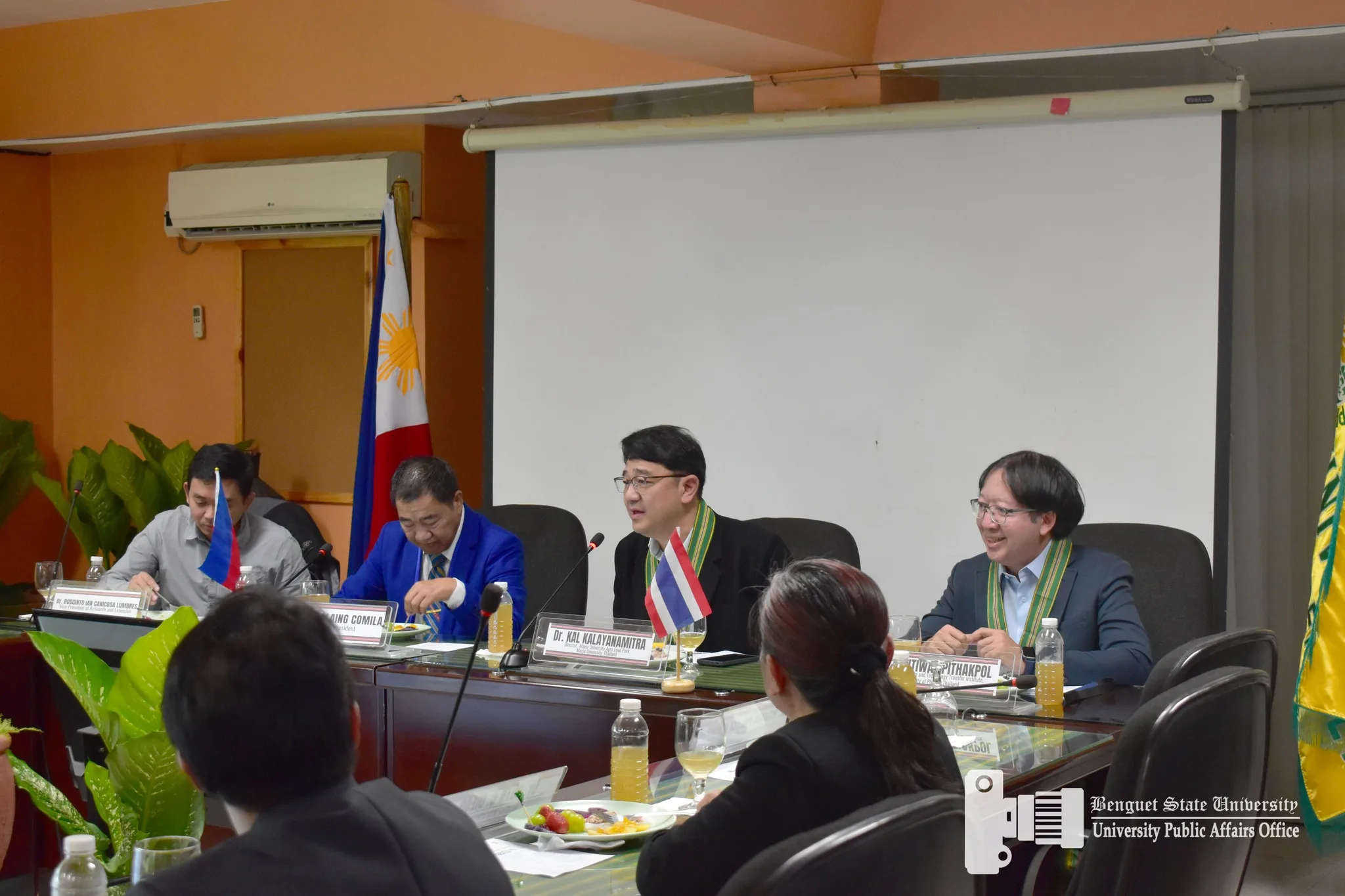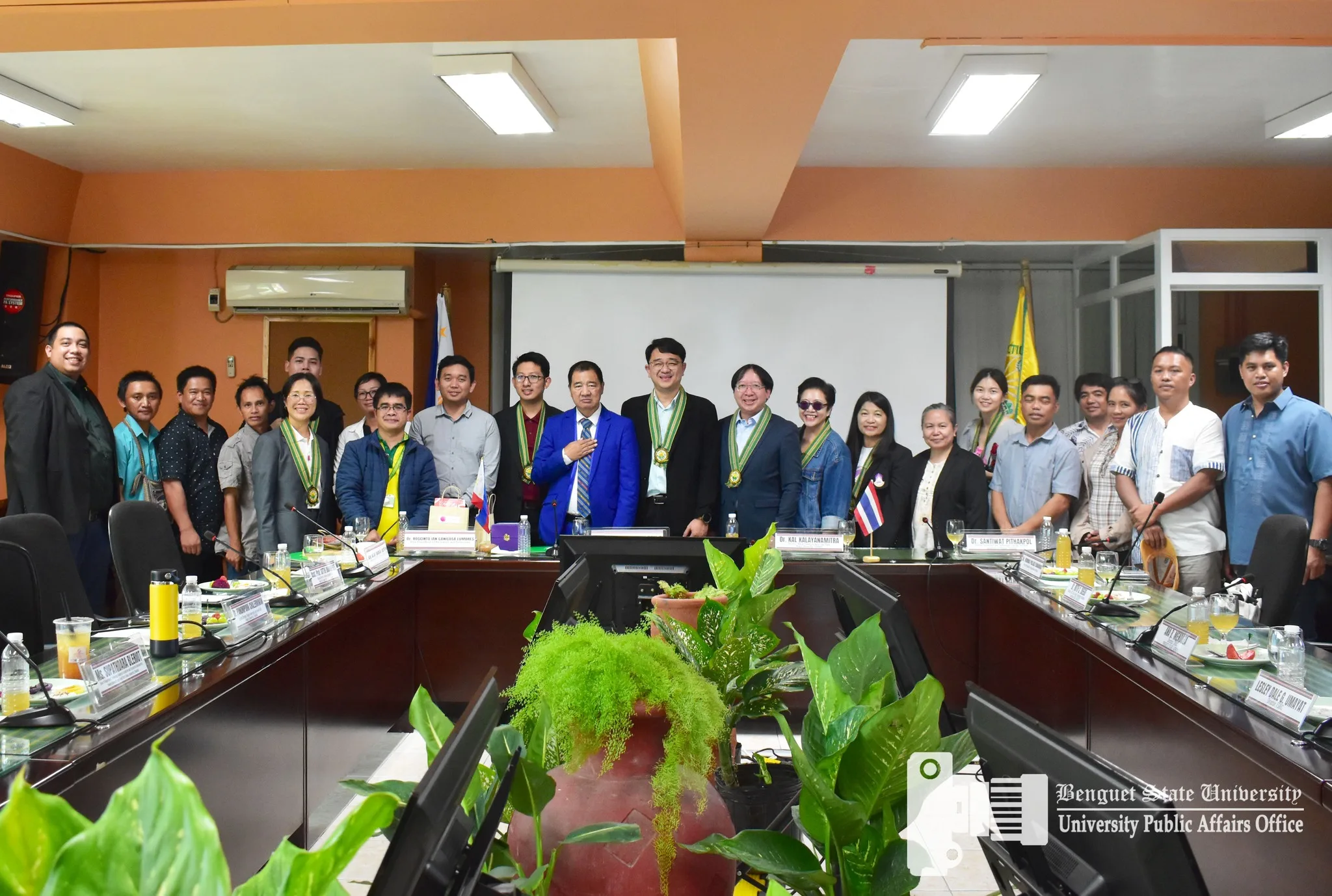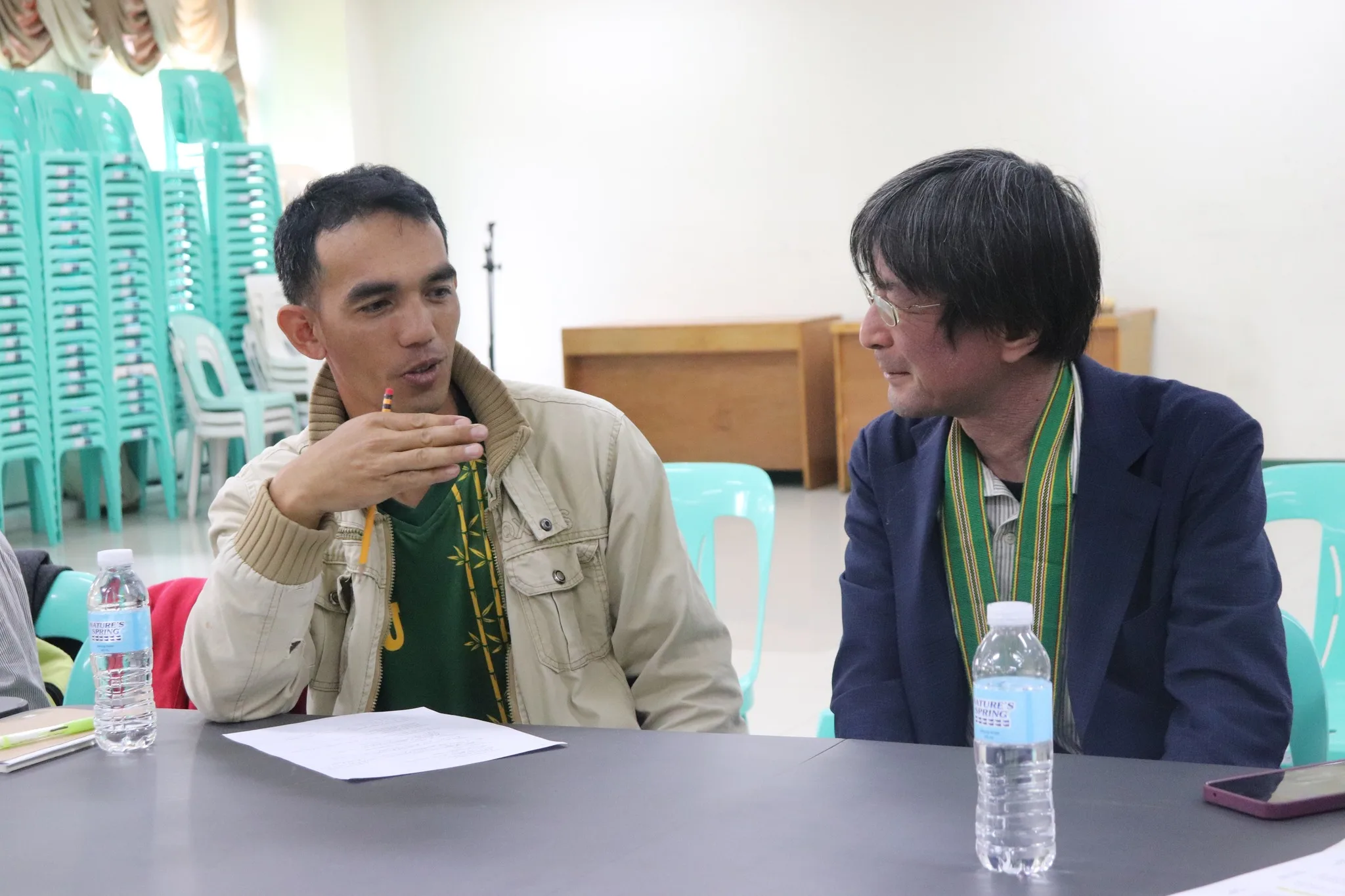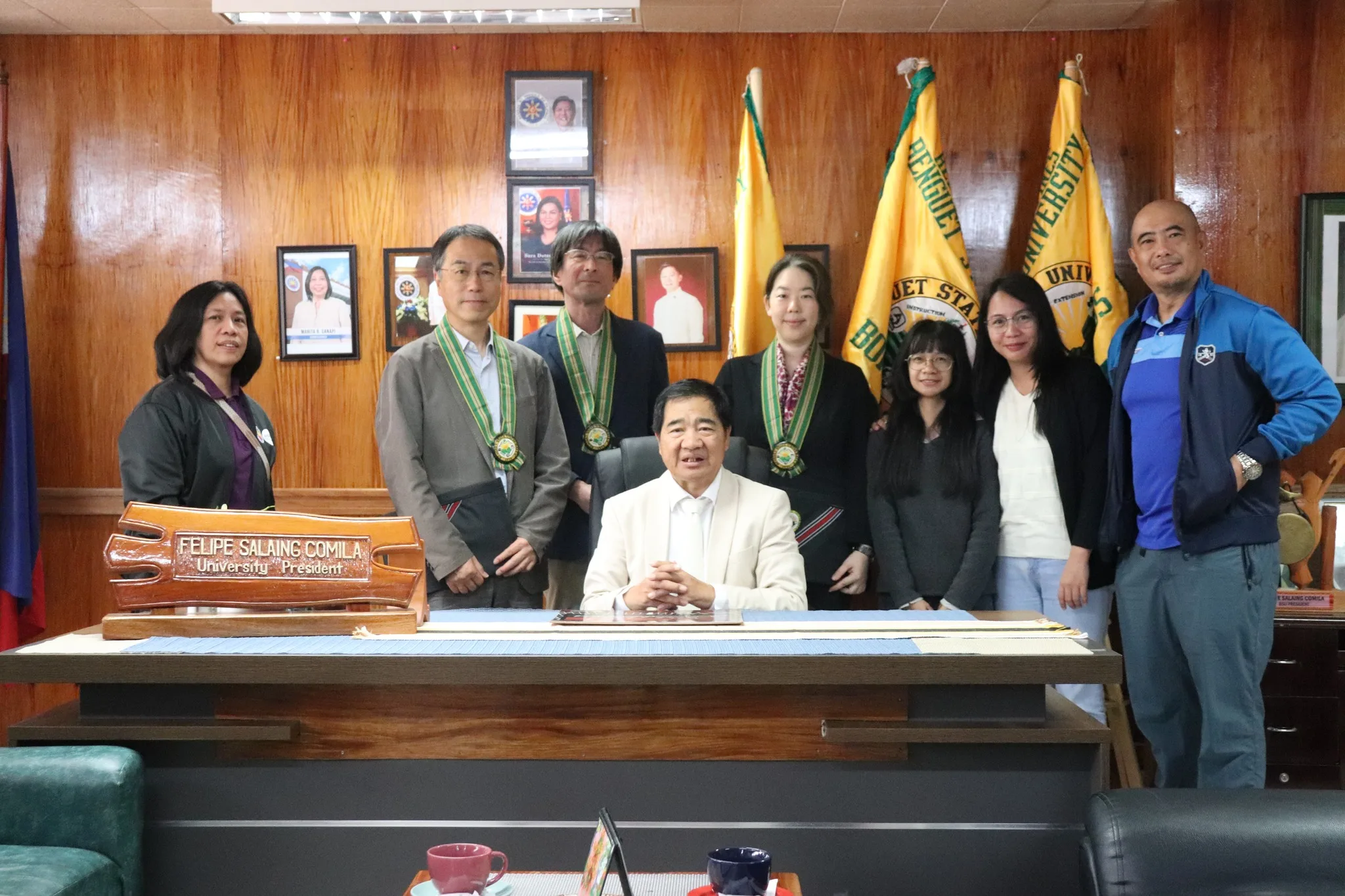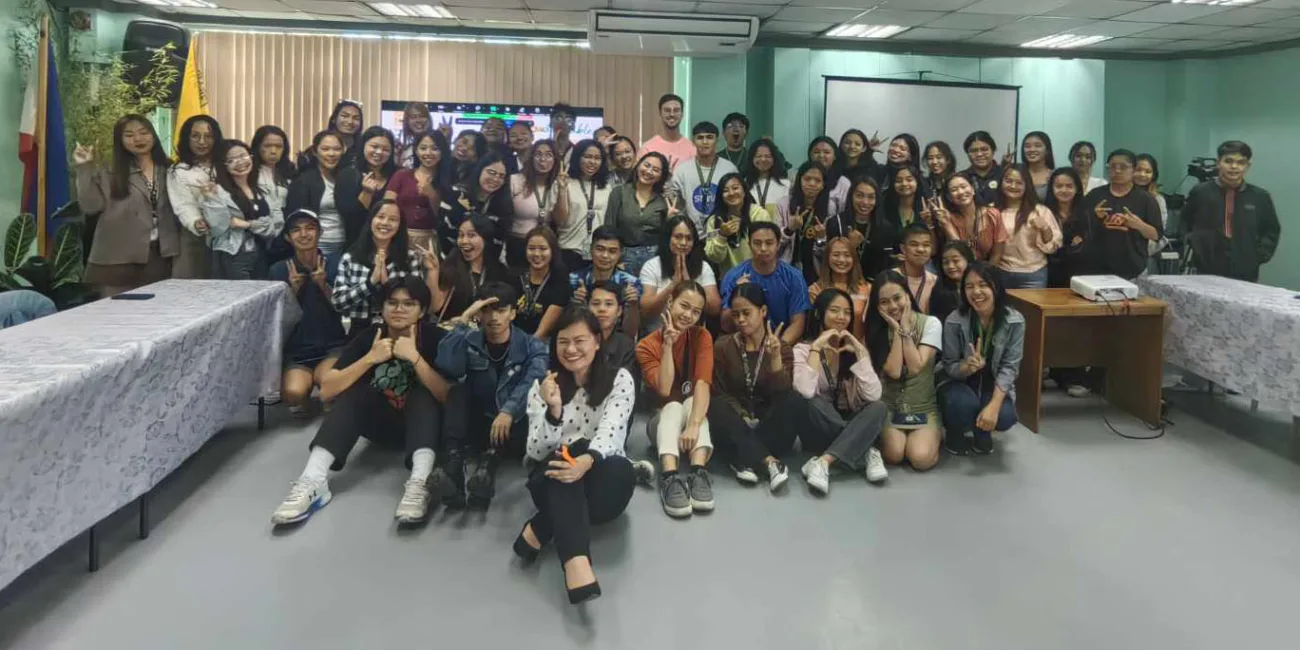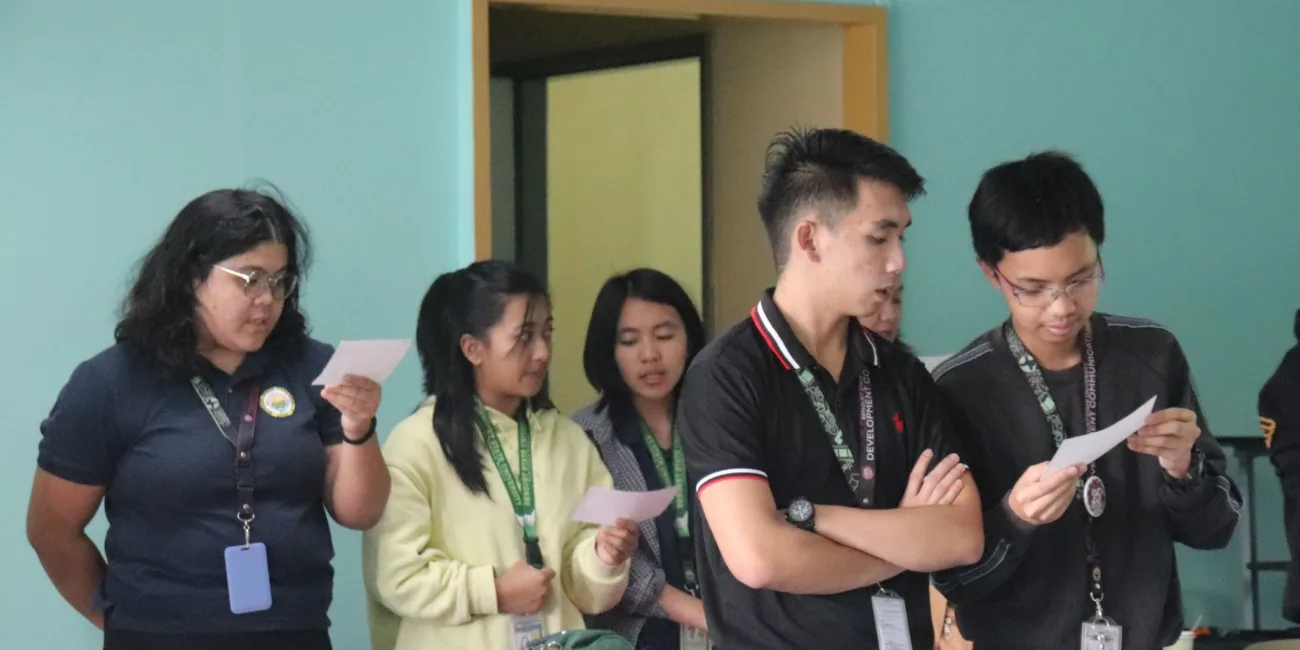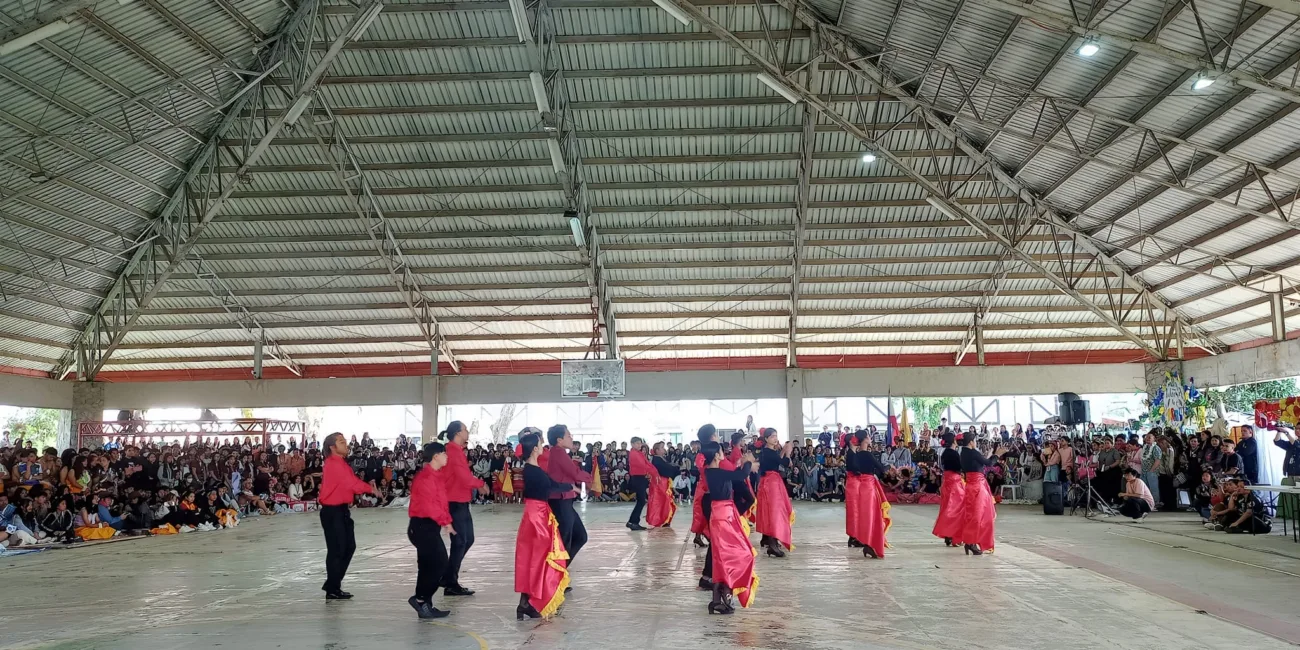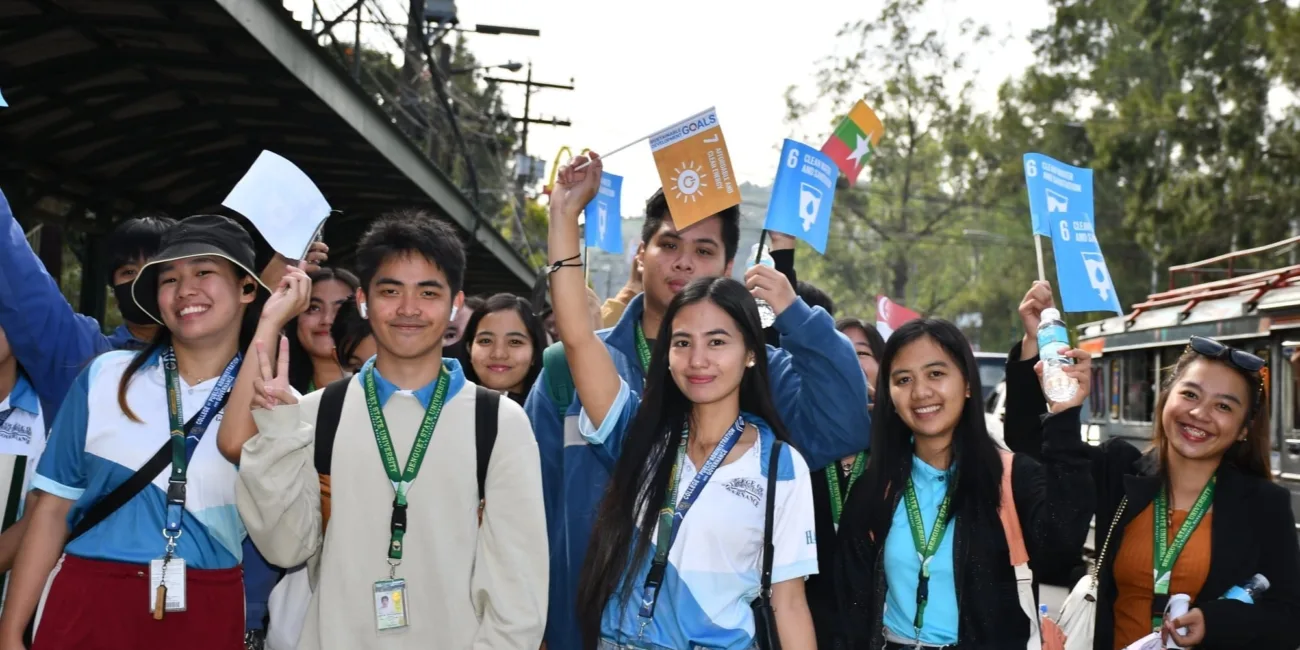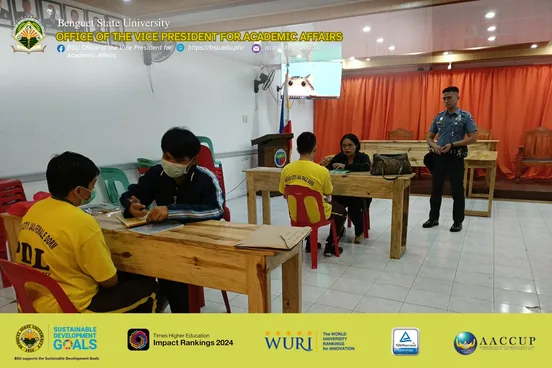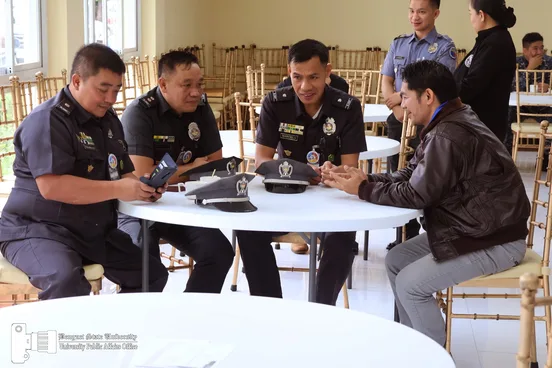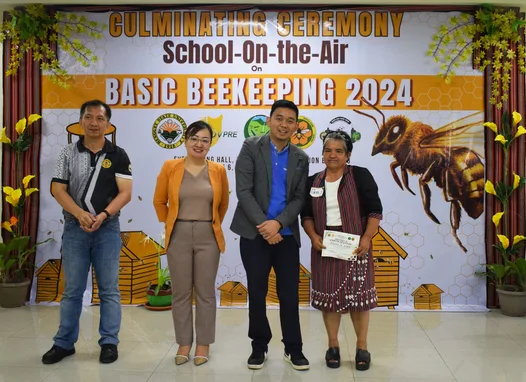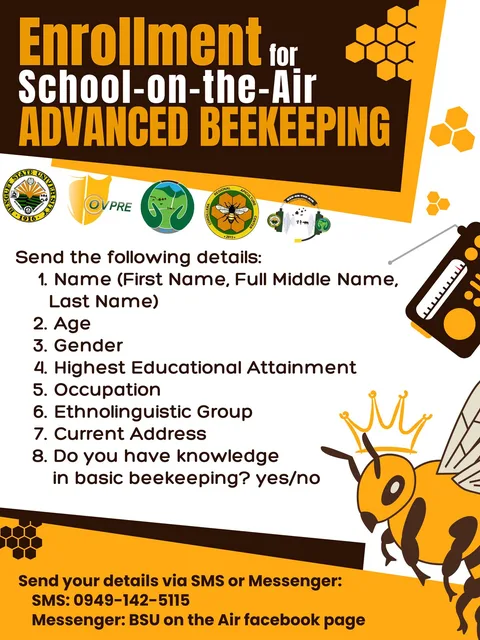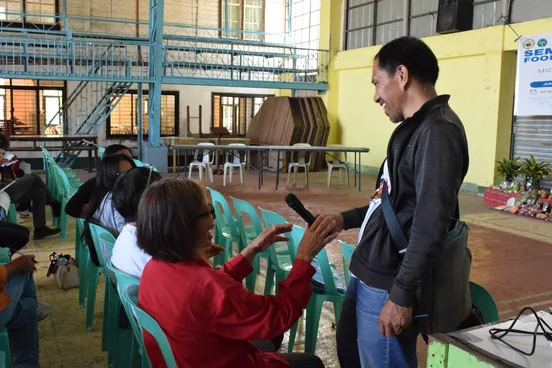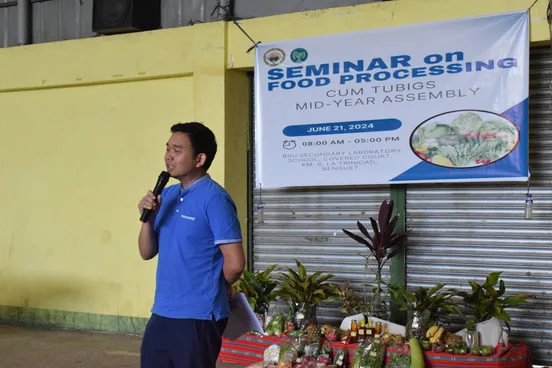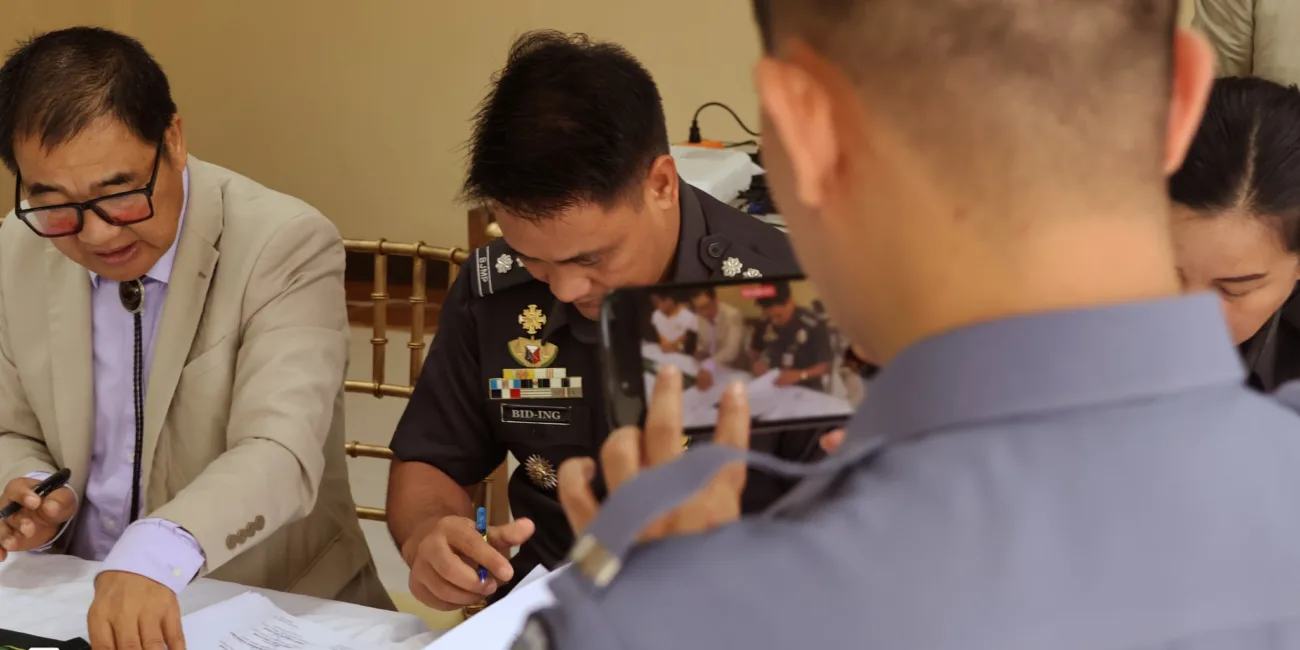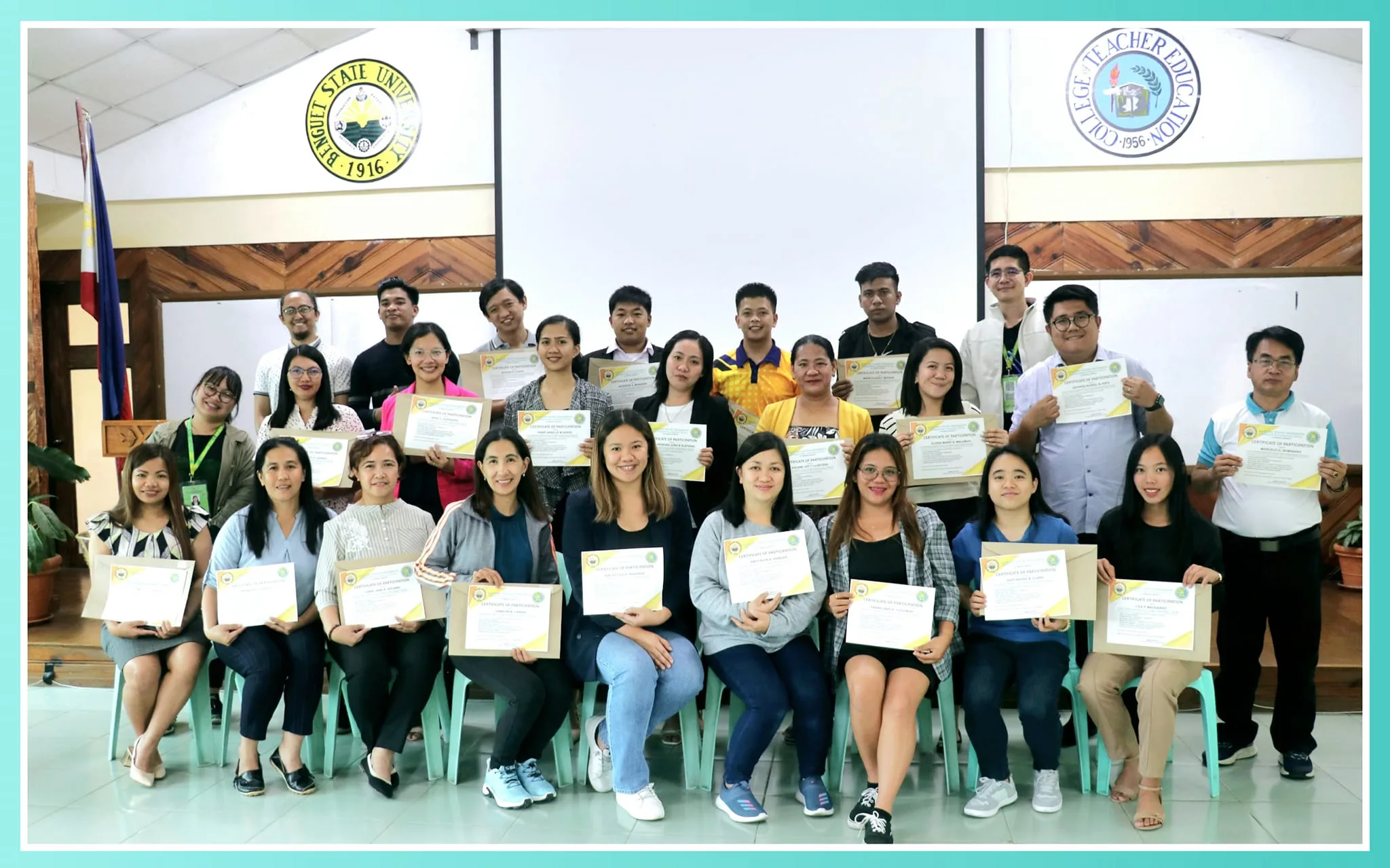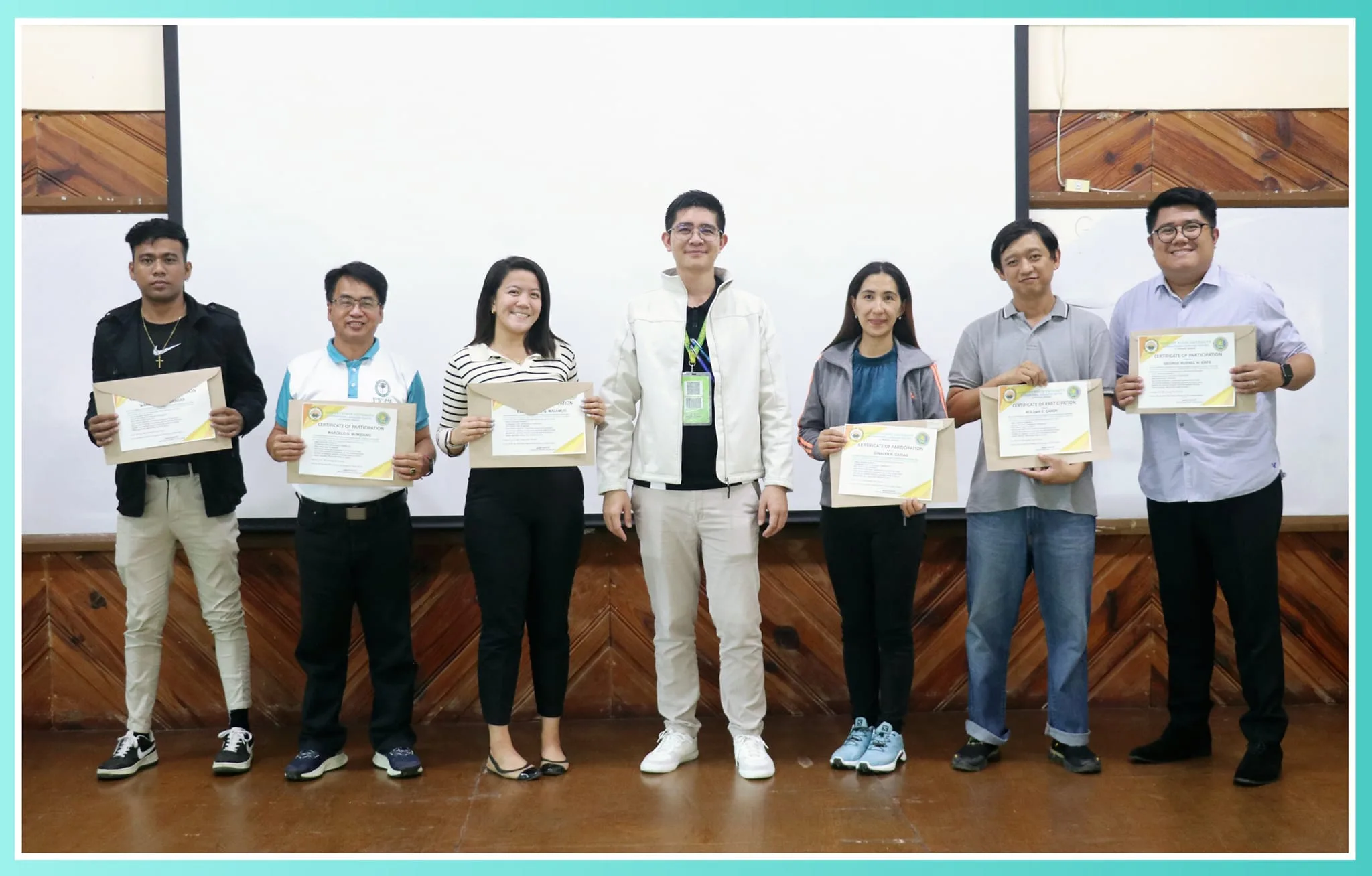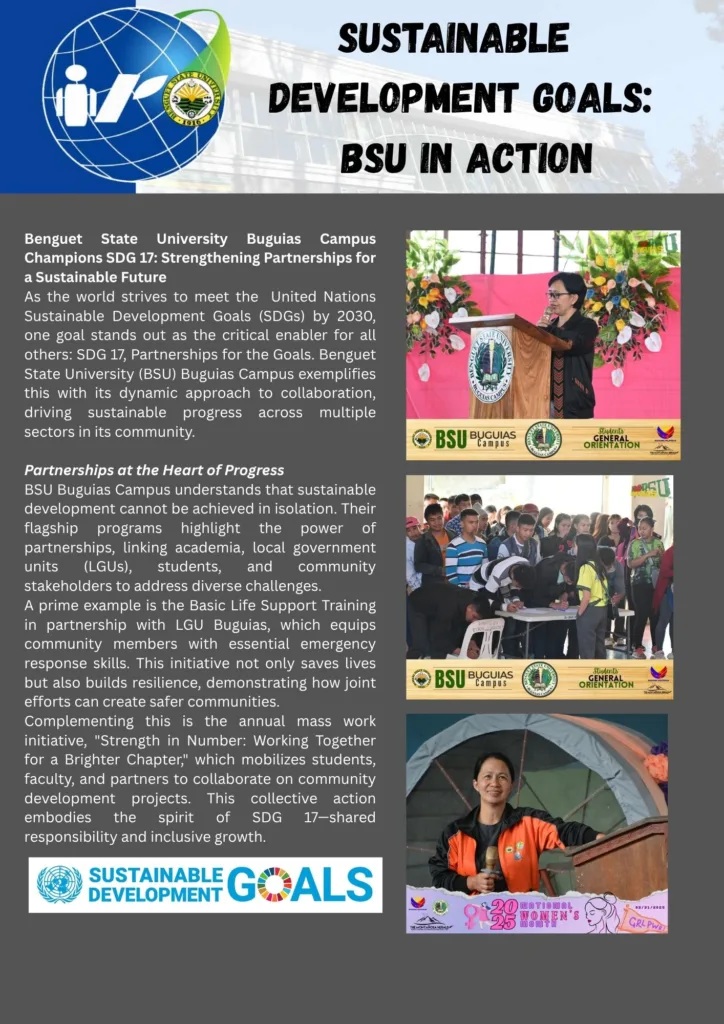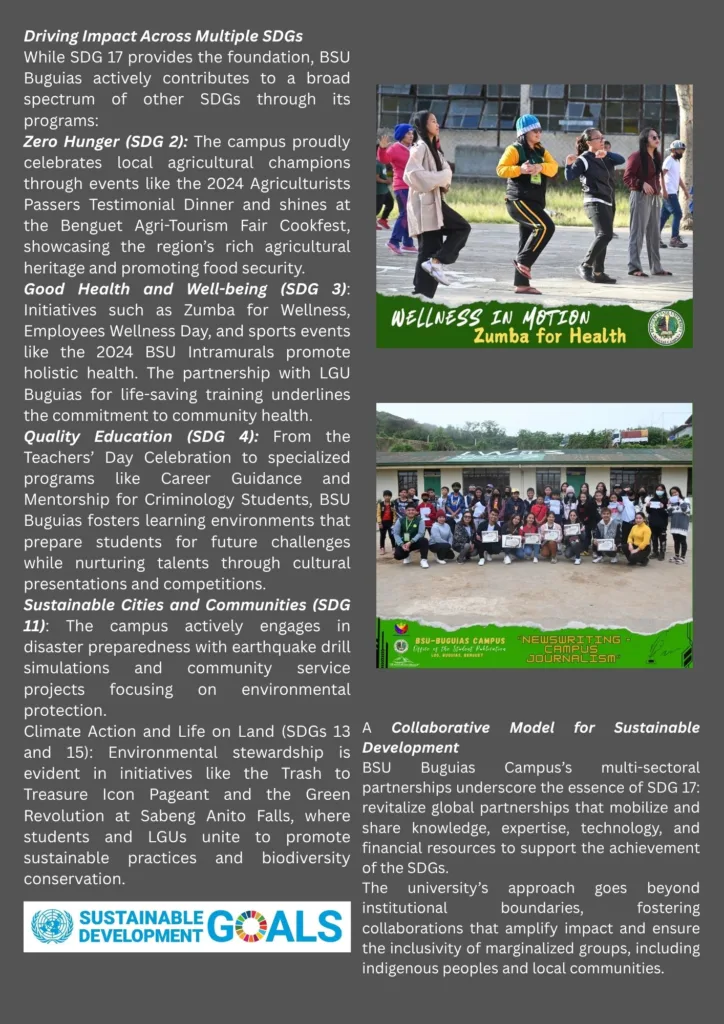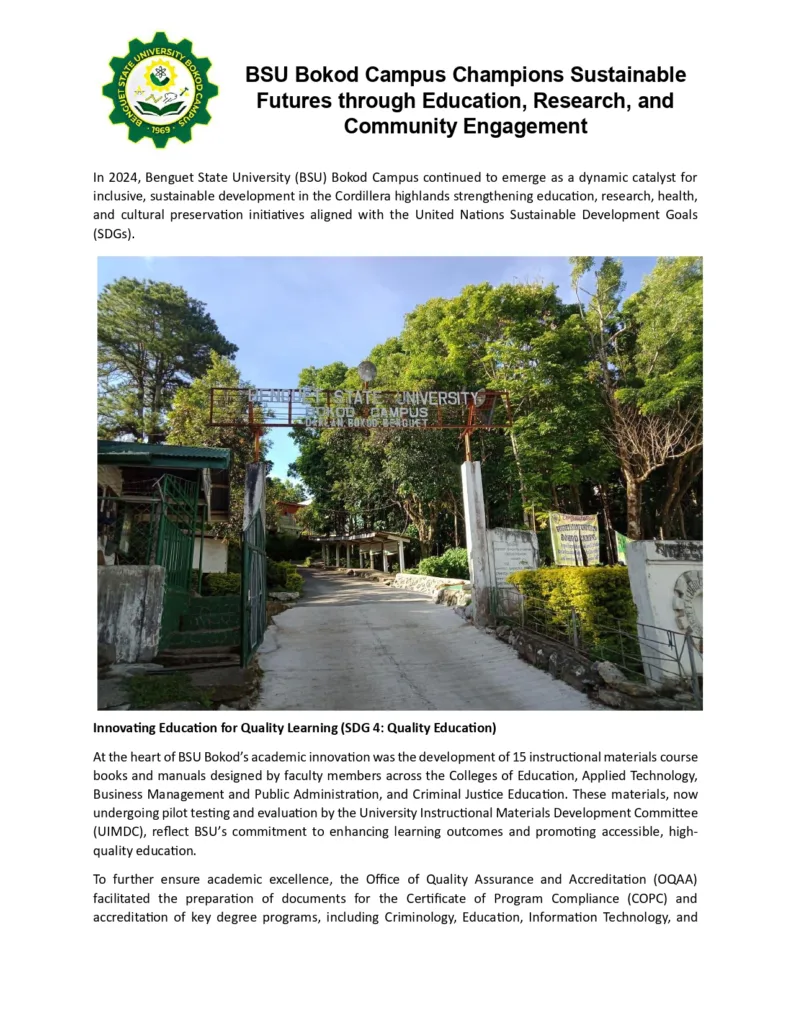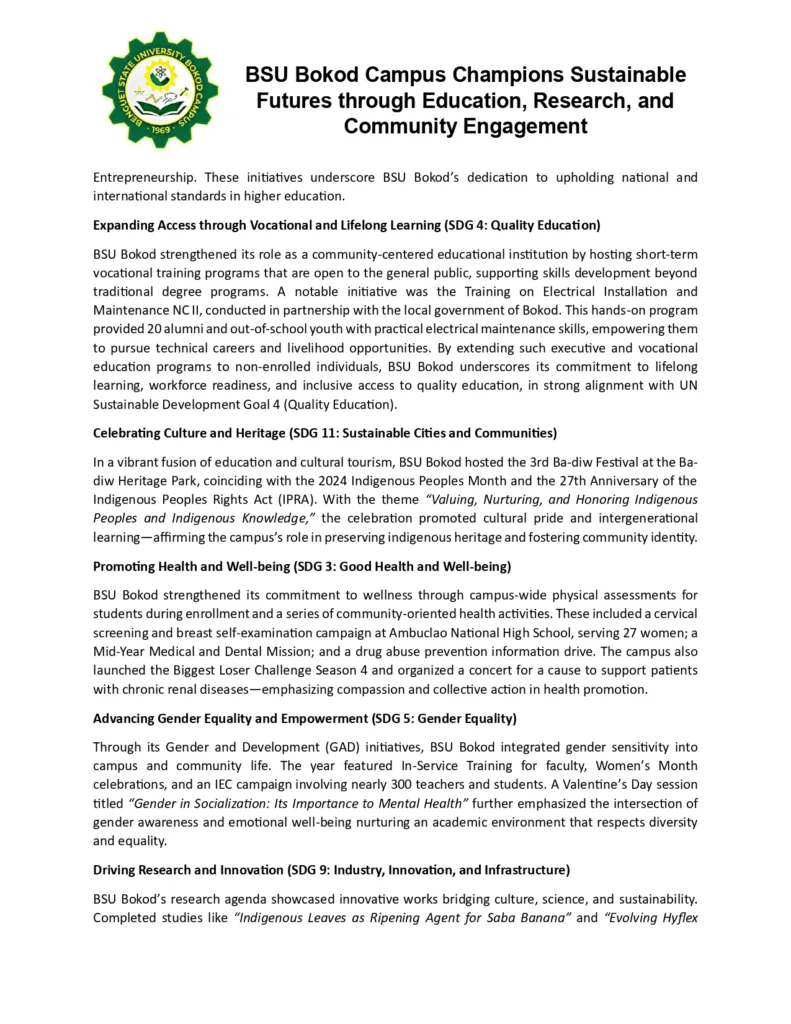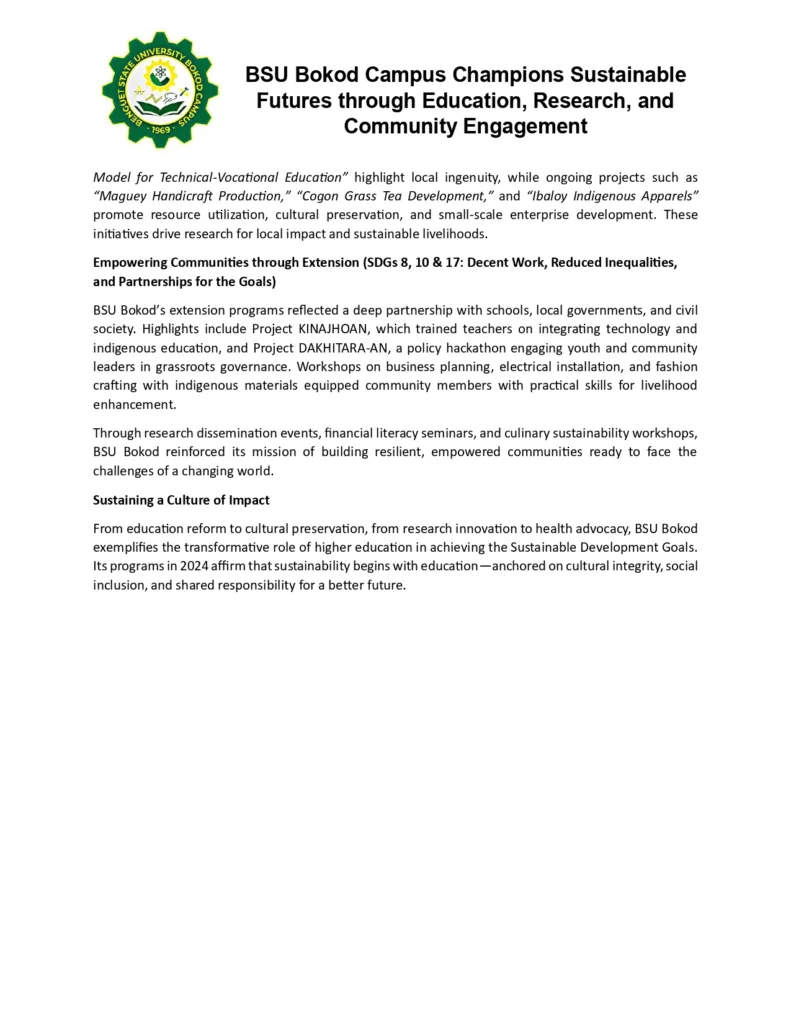SDG 17: PARTNERSHIPS FOR THE GOALS
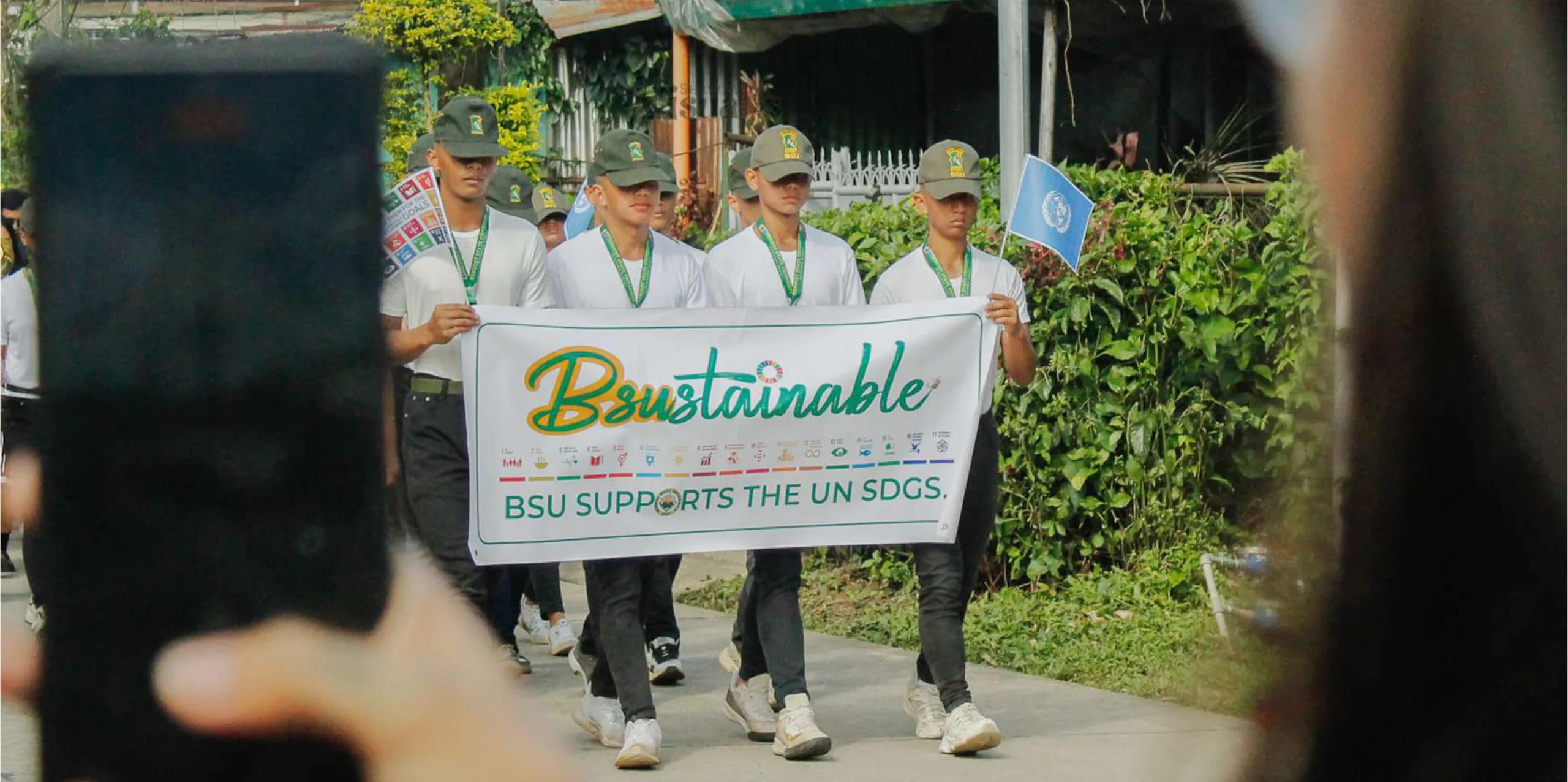
Benguet State University (BSU) strategically leveraged collaborative partnerships in 2024 as the essential mechanism for translating global sustainability goals into measurable local impact. This comprehensive effort, rooted in institutional objectives focused on proactively strengthening linkages , directly addresses the mandates of UN Sustainable Development Goal 17 (Partnerships for the Goals).
The university’s approach spans deep policy engagement with government, multi-stakeholder cross-sectoral dialogue, reciprocal international collaboration, and the institutionalization of sustainability education and best practices.
Relationships with Regional Government and NGOs for SDG Policy
BSU demonstrated direct involvement in and input into regional government and policy development throughout 2024, ensuring academic expertise translates into actionable governance and societal change.
Policy and Legislative Translation
- Training on National Legislation: BSU’s Gender and Development (GAD) Office concluded its 18-Day Campaign to End Violence Against Women (VAW) (November 25 – December 12, 2024) by hosting a crucial training-forum on the Safe Spaces Act (RA 11313). This event included participation from the Commission on Higher Education-Cordillera Administrative Region (CHED-CAR). The GAD Focal Person for CHED-CAR emphasized the critical importance of integrating gender perspectives into university policies, programs, curricula, and research. This initiative serves as clear evidence of BSU acting as an institutional intermediary, ensuring the translation of national SDG 5 (Gender Equality) policy into regional higher education operations, thereby supporting SDG 16 (Peace and Justice) and SDG 17 goals regarding policy input.
- Government Capacity Building: BSU established linkages with the Bureau of Fire Protection-CAR (BFP-CAR) to mainstream gender perspectives in Disaster Risk Reduction and Management (DRRM) activities, resulting in multiple training sessions focused on fire safety and basic life support in 2024.
Localizing Internationalization (IZN) for Development
- Formal MOA with Local Government Units (LGUs): The International Relations Office (IRO) pioneered the localization of internationalization efforts by signing a MOA with the Kabayan Local Government Unit (LGU) on December 18, 2024. This marks Kabayan as the first municipality to formalize such a partnership, which was framed in support of SDG17 by encouraging essential academia-government collaboration. The collaboration focuses on conducting a Training Needs Assessment (TNA) to identify and deliver tailored capacity-building programs aligned with Kabayan’s local development goals.
- Expanding LGU Collaboration: Further reinforcing its commitment to community-driven IZN, the IRO initiated discussions with the Kapangan LGU in July 2024 to explore similar opportunities for partnership.
- Adopt-a-Community Program: The University sustained its commitment to community development through the ‘Adopt-a-Community’ program , formalizing a pivotal MOA in Barangay Nawal, Bokod, Benguet in 2024. The contractual commitment is explicitly focused on resource development geared toward people empowerment, poverty alleviation, self-sustenance, and environmental protection , directly supporting SDG 1 (No Poverty), SDG 15 (Life on Land), and SDG 17.
Cross-Sectoral Dialogue About SDGs
BSU actively initiated and participated in cross-sectoral dialogues, including conferences, forums, and workshops, involving government, industry, and non-government organizations (NGOs) to drive SDG conversations and practical implementation.
- Industry Collaboration for Economic Growth (SDG 8 & 9): BSU’s Food Processing Center (FPC) conducted the “Artisan and Laminated Bread Baking” training in collaboration with leading bakery industry associations: the Philippine Society of Baking and the Filipino-Chinese Bakery Association, Inc.. This joint initiative provided participants with hands-on experience in the latest industry trends, serving as a direct dialogue between academia, local industry, and professional NGOs to enhance skills and economic capacity. NGO/Farmer Benchmarking: Personnel from the Our Farmers’ Haven Federation, Inc., a farmer organization, visited the Food Processing Center and the Agri-based Technology Business Incubator/Innovation Center in July 2024, engaging in a dialogue focused on adopting BSU’s proven agricultural and innovation models.
- Migration Studies Forum: BSU hosted the Misotrans Network Summer Academy on Migration Studies 2024 in September 2024, facilitating a multi-stakeholder discussion on migration issues.
Collaboration for SDG Best Practices and Knowledge Mobilization
BSU is a regional hub for sharing best practices, particularly in agriculture, research, and income generation, fulfilling the mandate for collaborative knowledge transfer.
- Sharing Agricultural and Innovation Models: In July 2024, BSU hosted a total of 252 visitors from various State Universities and Colleges (SUCs) and organizations, including Cavite State University, Batangas State University, and Isabela State University. Benchmarking visits focused on BSU’s best practices in agriculture, the Research and Extension sector, Income-Generating Projects (IGPs), the Food Science Research and Innovation Center, and the Agri-based Technology Business Incubator. This sustained knowledge mobilization provides quantitative evidence of BSU sharing proven models for economic growth and innovation (SDG 2, 9, 17).
- Institutionalizing Responsible Research: BSU held a two-day training and workshop on research ethics for faculty researchers in April 2024, which included dedicated discussions on ethical guidelines for research involving indigenous peoples and herbal research. By tailoring its ethics framework, BSU established an institutional best practice for culturally responsive and responsible knowledge governance, which is vital for justice and institutional capacity (SDG 16).
- Forum on Applied Research: The 8th University Student Research Congress (USRC) in June 2024 featured evaluators from the DOST-Filipino Inventors Society-CAR President (representing industry/NGO innovation) and the University of the Philippines-Baguio. This forum mandated students and faculty to “Go back to the community to present your research” , ensuring that academic output feeds directly into cross-sectoral extension and dialogue.
International Collaboration for Best Practice and Data Gathering
The university’s international strategy prioritized partnerships that directly support the gathering of data, development of best practices, and joint research dedicated to tackling the SDGs.
- Collaboration for Sustainability Research: BSU’s partnership with Kochi University (KU) of Japan was formalized based on KU’s visit in March 2024. The collaboration is explicitly dedicated to enhancing education, innovation, and sustainability that benefits both communities through deeper academic exchange and joint research tackling serious global and local issues. KU’s focus on Kuroshio Science and SDG contributions aligns this partnership with international efforts to gather data and develop comparative approaches in sustainability.
- Knowledge Exchange on Innovation and Technology (SDG 9): A delegation from Thai universities visited BSU in September 2024 for a cooperation program centered on technology business incubation. This collaboration demonstrates BSU’s active participation in international knowledge transfer relating to industry, innovation, and infrastructure. Reciprocal Global Knowledge Sharing: BSU faculty members shared specialized knowledge on indigenous healing practices and related issues during the Intercultural Exchange Program at the University of Guam in September 2024. This effort showcases BSU’s role in contributing unique cultural and domain-specific knowledge to the global academic community.
- Capacity Building for Research Dissemination: BSU hosted a delegation from the Institute of Statistical Mathematics (ISM), Sapporo Medical University, and the University of Ryukyus in December 2024. Discussions focused on exploring international organizations and the visiting professors introduced their academic journal as a potential publishing platform, directly boosting the capacity of BSU researchers to participate in international data gathering and knowledge dissemination.
- Sustainable Agriculture Data: The Northern Philippines Root Crops Research and Training Center (NPRCRTC) represented BSU at the 4th AsiaBlight International Meeting in Chengdu, China (November 2024). The BSU representatives presented research findings on potato late blight management in Benguet dating back to the 1980s. This participation fulfills the requirement for international collaboration on gathering data essential for SDG 2 (Zero Hunger) research.
Education for the SDGs and Sustainability Literacy
BSU solidified its commitment to transformative SDG education, embedding awareness and literacy across the university and the wider community.
- Sustainability Literacy Program Launch: The International Relations Office (IRO) launched the Sustainability Literacy Program on October 21, 2024, gathering 102 participants (online and onsite). The program introduced the emerging Inner Development Goals (IDGs) framework alongside the UN SDGs. By focusing on IDGs (which cultivate perspective-taking and critical thinking), BSU demonstrates a commitment to meaningful education required for genuine systemic change (SDG 4).
- Community Education and Student Involvement: During International Week 2024, students of the Bachelor of Science in Development Communication showcased video outputs that highlighted the current state of SDG implementation and proposed actionable steps for Cordilleran universities, engaging the wider community in SDG dialogue. The IRO also launched the BSUstainable Photo Contest during this time, inviting students to capture BSU’s contributions to the SDGs.
Education in the Wider Community
- Mass Educational Outreach (School-on-Air Modality): The School-on-Air (SOA) modality is an institutionalized extension strategy that utilizes radio or Teleradyo broadcasts to bypass the digital divide and disseminate knowledge to remote, resource-poor populations. The Office of Extension Services’ (OES) HERALDS Agenda explicitly includes Education & Information Trading and Responsive Technology Promotion & Rural Advisory Services, which rely on this modality to educate communities, farmers, and local government officials about the SDGs.
- Benguet State University and the Bureau of Jail Management and Penology Cordillera Administrative Region (BJMP-CAR) launched the College Education Behind Bars (CEBB) Program. The Memorandum of Agreement (MOA) was officially signed on July 26, 2024, to solidify the partnership. These classes were taken during the first semester of the 2024-2025 school year, providing educational opportunities to persons deprived of liberty. The College Education Behind Bars (CEBB) Program primarily addresses Sustainable Development Goal (SDG) 4: Quality Education and SDG 16: Peace, Justice and Strong Institutions.
- The International Language Center has conducted two three-day trainings on the written and spoken discourses on March 15-17, 2024 and August 16-18, 2024, respectively. The activities were participated by a total of 46 individuals coming from various offices or agencies such as the Local Government Unit of Baguio, LGU Tuba, LGU Apayao, LGU Tinoc, DENR-Regional Office, DENR- Abra, BFP-CAR and Apayao State University. Likewise, International students enrolled and took English Language Proficiency for Individual Advancement (ELPIA) at the International Language Center. The international students who availed are Ms. Biak Thluai Cin from Malaysia and Mr. Collins Alele from Nigeria.
Sustainability Across BSU Campuses and Centers
The main campus in La Trinidad is home to the College of Natural Sciences, which offers programs like Environmental Science. The university also operates the Cordillera Organic Agriculture and Development Center and the Northern Philippines Root Crops Research and Training Center, which focus on sustainable research. Furthermore, BSU’s satellite campuses in Bokod and Buguias integrate sustainable methods into their agriculture and technology programs, contributing to local and global environmental solutions.
College Programs and their SDG Alignment
- The College of Agriculture promotes sustainable agriculture and food security, aligning with SDG 2: Zero Hunger and SDG 12: Responsible Consumption and Production.
- College of Forestry focuses on forest management and conservation, supporting SDG 13: Climate Action and SDG 15: Life on Land.
- College of Teacher Education prepares educators to teach sustainability, contributing to SDG 4: Quality Education and SDG 10: Reduced Inequalities.
- College of Nursing addresses health and well-being, including how the environment impacts health, aligning with SDG 3: Good Health and Well-being.
- The College of Engineering develops sustainable infrastructure and technology solutions like renewable energy, which aligns with SDG 7: Affordable and Clean Energy and SDG 9: Industry, Innovation and Infrastructure.
- College of Human Kinetics promotes healthy lifestyles and community well-being, aligning with SDG 3: Good Health and Well-being and SDG 11: Sustainable Cities and Communities.
- College of Social Sciences examines societal structures, governance, and human behavior, contributing to SDG 10: Reduced Inequalities and SDG 16: Peace, Justice and Strong Institutions.
- College of Veterinary Medicine ensures animal health, welfare, and food safety, aligning with SDG 2: Zero Hunger and SDG 3: Good Health and Well-being.
- The College of Information Sciences drives digital literacy, innovation, and access to information, supporting SDG 9: Industry, Innovation and Infrastructure and SDG 4: Quality Education.
- College of Home Economics and Technology focuses on sustainable living, nutrition, and family resource management, aligning with SDG 12: Responsible Consumption and Production and SDG 3: Good Health and Well-being.
- College of Arts and Humanities fosters cultural understanding, ethics, and creative expression, contributing to SDG 16: Peace, Justice and Strong Institutions and SDG 4: Quality Education.
- College of Numeracy and Applied Sciences provides the foundational knowledge in mathematics and applied sciences that underpins research and innovation for multiple SDGs, including SDG 9: Industry, Innovation and Infrastructure.
- College of Public Administration and Governance develops future leaders and public servants in ethical governance and policy-making, directly aligning with SDG 16: Peace, Justice and Strong Institutions and SDG 11: Sustainable Cities and Communities.
- The College of Natural Sciences advances knowledge in biology, chemistry, and environmental science, which is fundamental to SDG 15: Life on Land and SDG 6: Clean Water and Sanitation.
